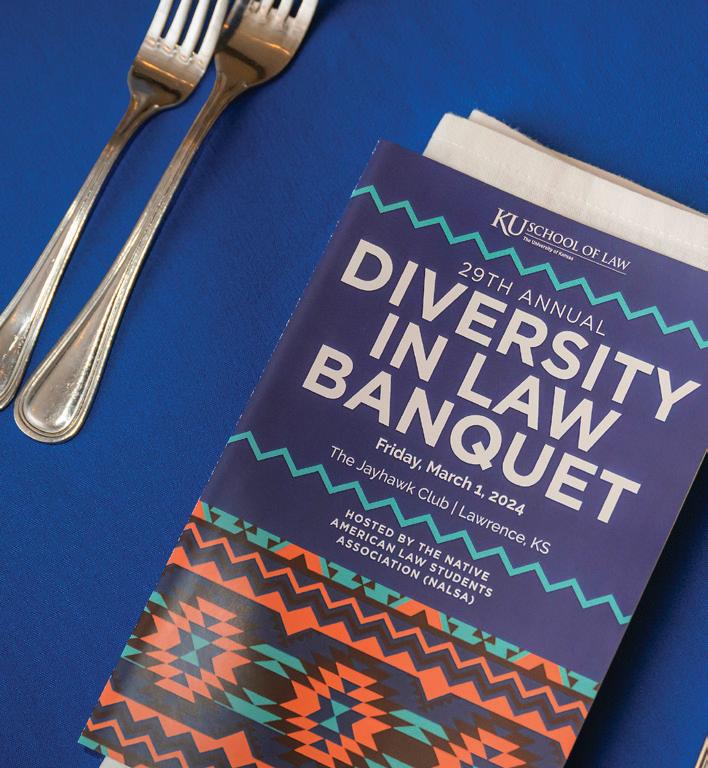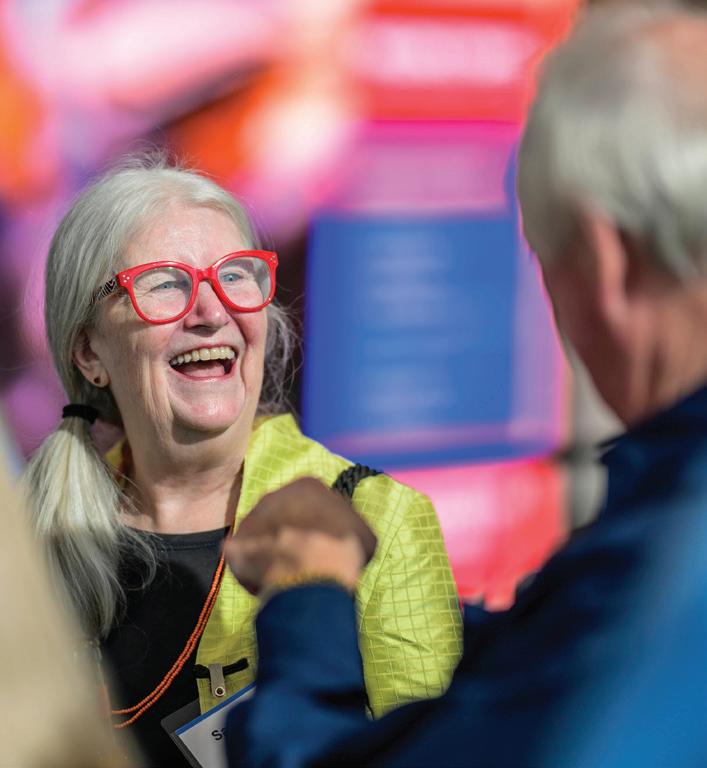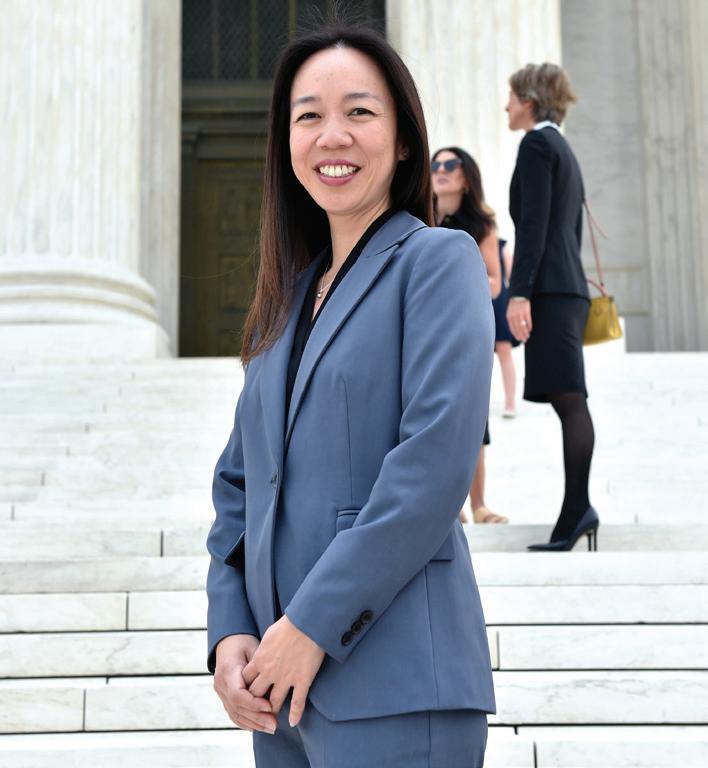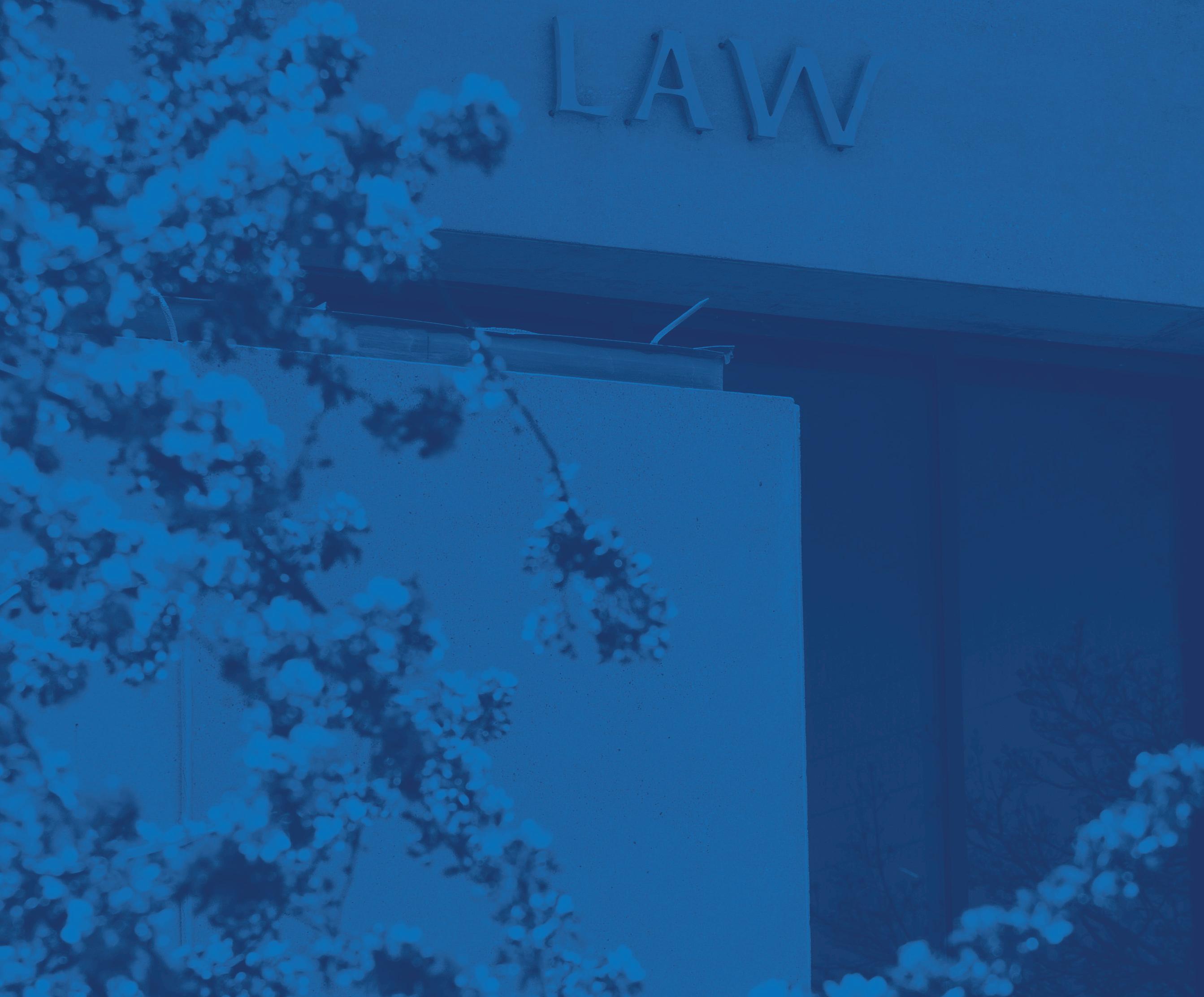










KU Law Magazine is published annually for alumni and friends of the University of Kansas School of Law.
Green Hall, 1535 W. 15th St. Lawrence, KS 66045-7608
Phone: 785-864-4550
Fax: 785-864-5054 law.ku.edu
DEAN
Stephen Mazza
EDITOR & DESIGNER
Julie Francisco juliefrancisco@ku.edu
785-864-9205
CONTRIBUTORS
Casey Bacot
Mike Krings
Susanne Stoupakis
PHOTOS
KU Marketing
Casey Bacot
Emma Herrman
Earl Richardson, L’08
PRINTING
Sun Graphics Parsons, Kansas
The University of Kansas prohibits discrimination on the basis of race, color, ethnicity, religion, sex, national origin, age, ancestry, disability, status as a veteran, sexual orientation, marital status, parental status, gender identity, gender expression, and genetic information in the university's programs and activities. Retaliation is also prohibited by university policy. The following person has been designated to handle inquiries regarding the nondiscrimination policies and procedures and is the Title IX Coordinator for all KU and KUMC campuses: Associate Vice Chancellor for the Office of Civil Rights and Title IX, civilrights@ku.edu, Room 1082, Dole Human Development Center, 1000 Sunnyside Avenue, Lawrence, KS 66045, 785-864-6414, 711 TTY. Reports can be submitted to the Title IX Coordinator by visiting the following website: civilrights. ku.edu/how-report.
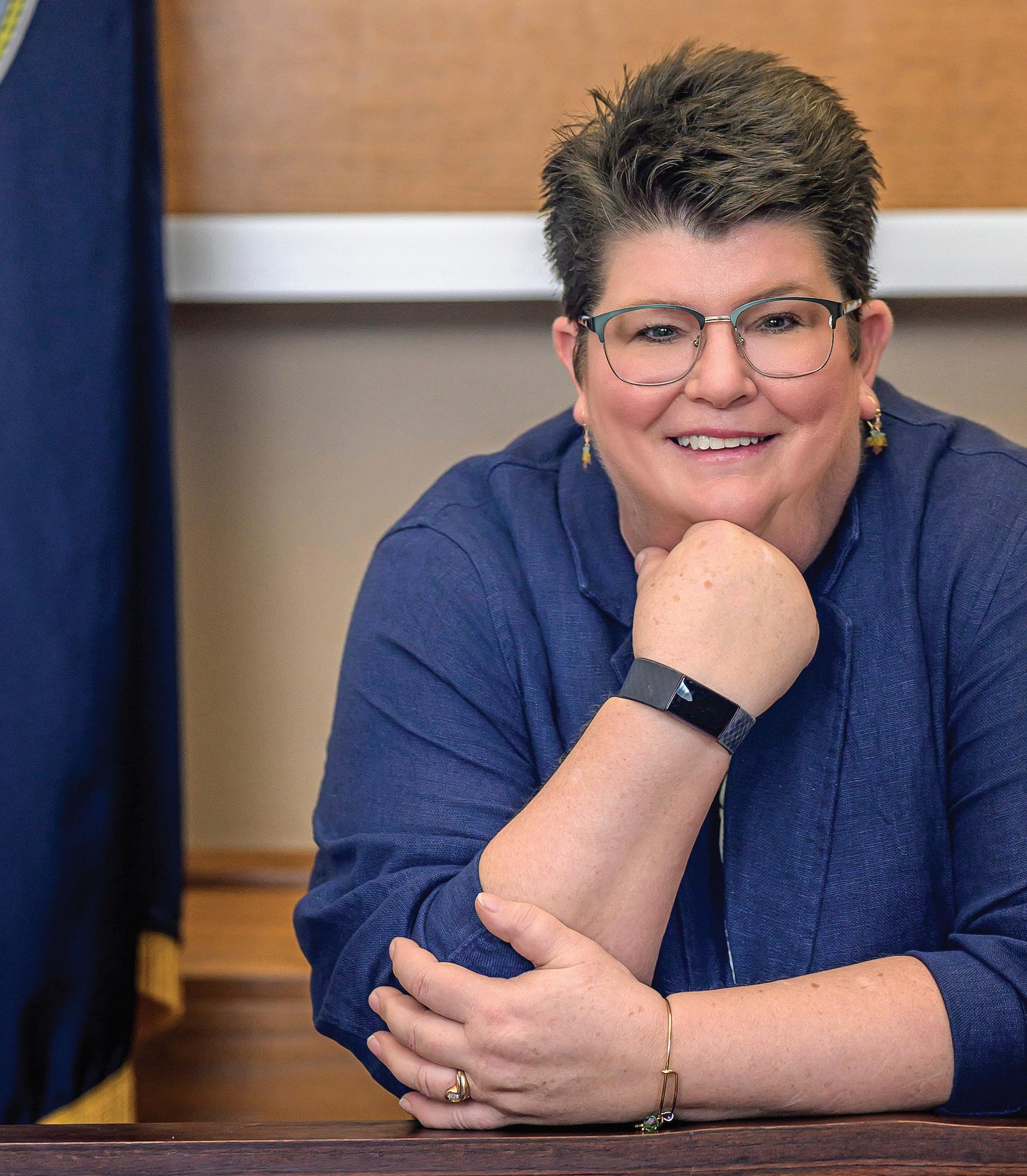
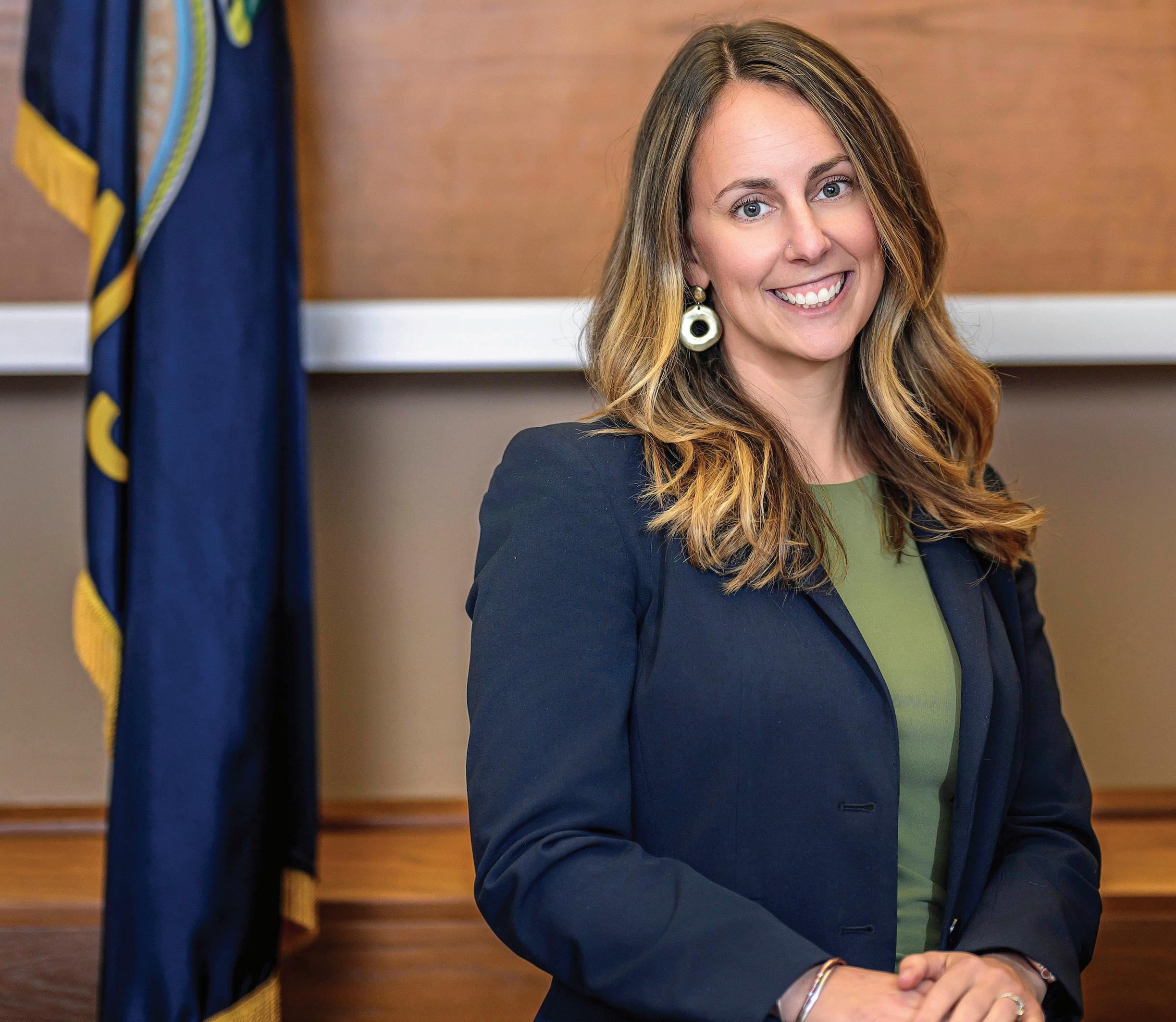
Faculty additions at Green Hall


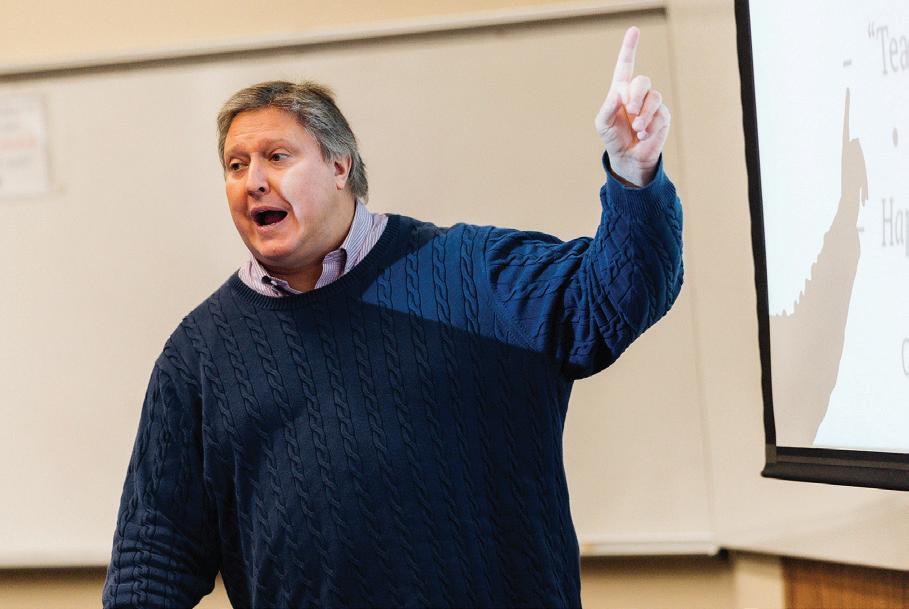
Jayhawk
Recognition
Alumni
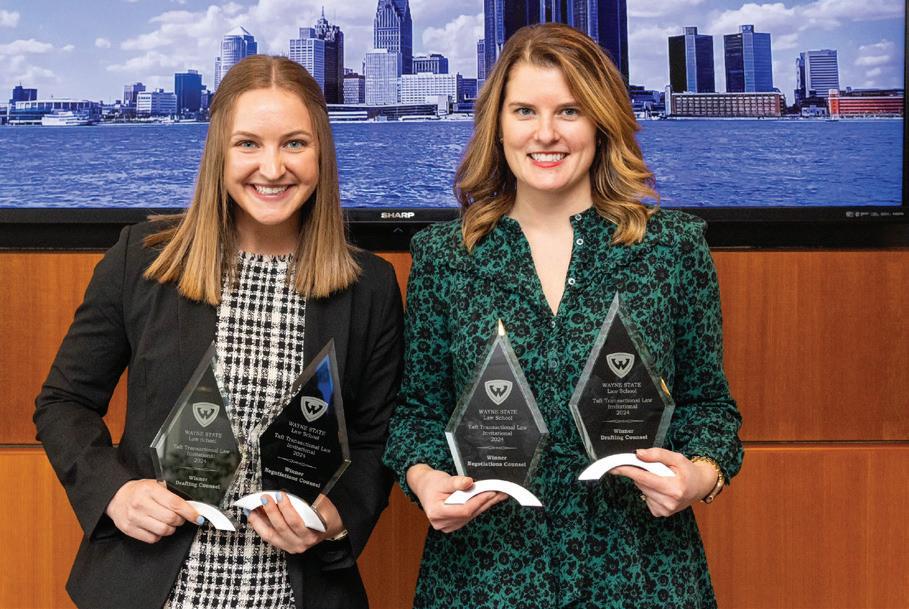
KU
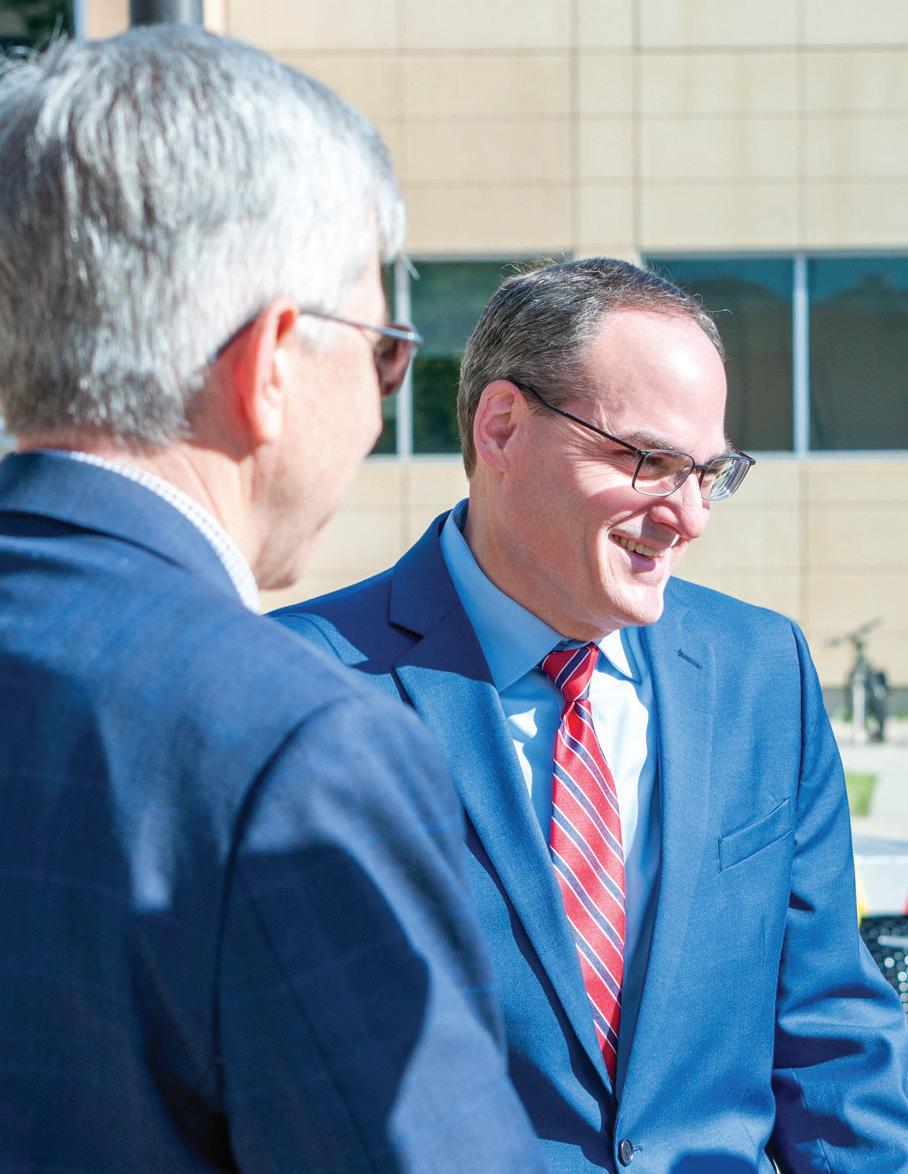
In a world where technology evolves at lightning speed, legal professionals are at the forefront of shaping its impact. In this issue of KU Law Magazine, we celebrate the intersection of law and technology by showcasing the incredible achievements of our alumni and the forward-thinking curriculum offered at KU Law. These stories highlight how Jayhawk lawyers are navigating and shaping the evolving landscape of technology.
We feature four alumni who have built impressive careers outside the courtroom. Laura Clark Fey, L’92, leads a global data privacy and information governance law firm. Jordan Reinhardt, L'20, serves as a product manager for a Kansas City startup specializing in software solutions for smart devices. Max Reaper, L'03, oversees coverage of privacy, artificial intelligence and other tech issues in state legislation for the government relations firm MultiState. Mauricio Uribe, L'98, leads the Software/ IT and Electrical and Data Privacy practice groups at Knobbe Martens, contributing to cutting-edge intellectual property work.
In addition to these alumni success stories, we highlight innovative courses at KU Law that are equipping students with the skills to tackle emerging legal and technological challenges. Professor Andew Torrance's Legal Analytics class empowers students to harness tools like artificial intelligence, statistical analysis and data visualization to interpret and communicate legal data effectively.
Meanwhile, Adjunct Professor Laura Clark Fey teaches Global Data Protection in the Age of AI, a highly interactive course addressing global privacy risks and obligations, with a focus on the growing influence of generative AI solutions on legal practice and business operations.
These stories reflect our commitment to preparing students not just for the legal challenges of today but for those that lie ahead in an increasingly tech-driven world. KU Law continues to stand at the forefront of legal education, equipping our graduates with the knowledge and adaptability needed to excel in dynamic and innovative fields.
Thank you for your continued engagement and support. Together, we celebrate the accomplishments of our alumni and the exciting future of law and technology.
Stephen W. Mazza Dean and Professor of Law

Forty-five students at the University of Kansas School of Law provided more than 1,580 hours of free legal services during the 2023-2024 academic year, with 26 of them earning a spot on KU Law’s Pro Bono Honor Roll.
Students worked for legal aid and prosecutor's offices, represented individuals in the KU Court of Parking Appeals, prepared tax returns for low-income residents and served as court-appointed special advocates for children in foster care.
In addition, 17 students were honored with Pro Bono Distinction for completing 50 hours or more of pro bono service throughout their law school career. Collectively, members of the Class of 2024 completed 2,436 hours of pro bono service.
Last year, the American Association of Law Schools (AALS) established a Pro Bono Honor Roll. Schools within the AALS may recognize one student annually for this honor. KU Law nominated Kylie Hance, Class of 2025. In her time at KU Law, Hance has completed more than 394 hours of pro bono service by participating in the law school’s expungement clinic, traffic court and Volunteer Income Tax Assistance (VITA) program. In the summer of 2023, she devoted her time to serving Kansans through the Low Income Taxpayer Clinic at Kansas Legal Services.
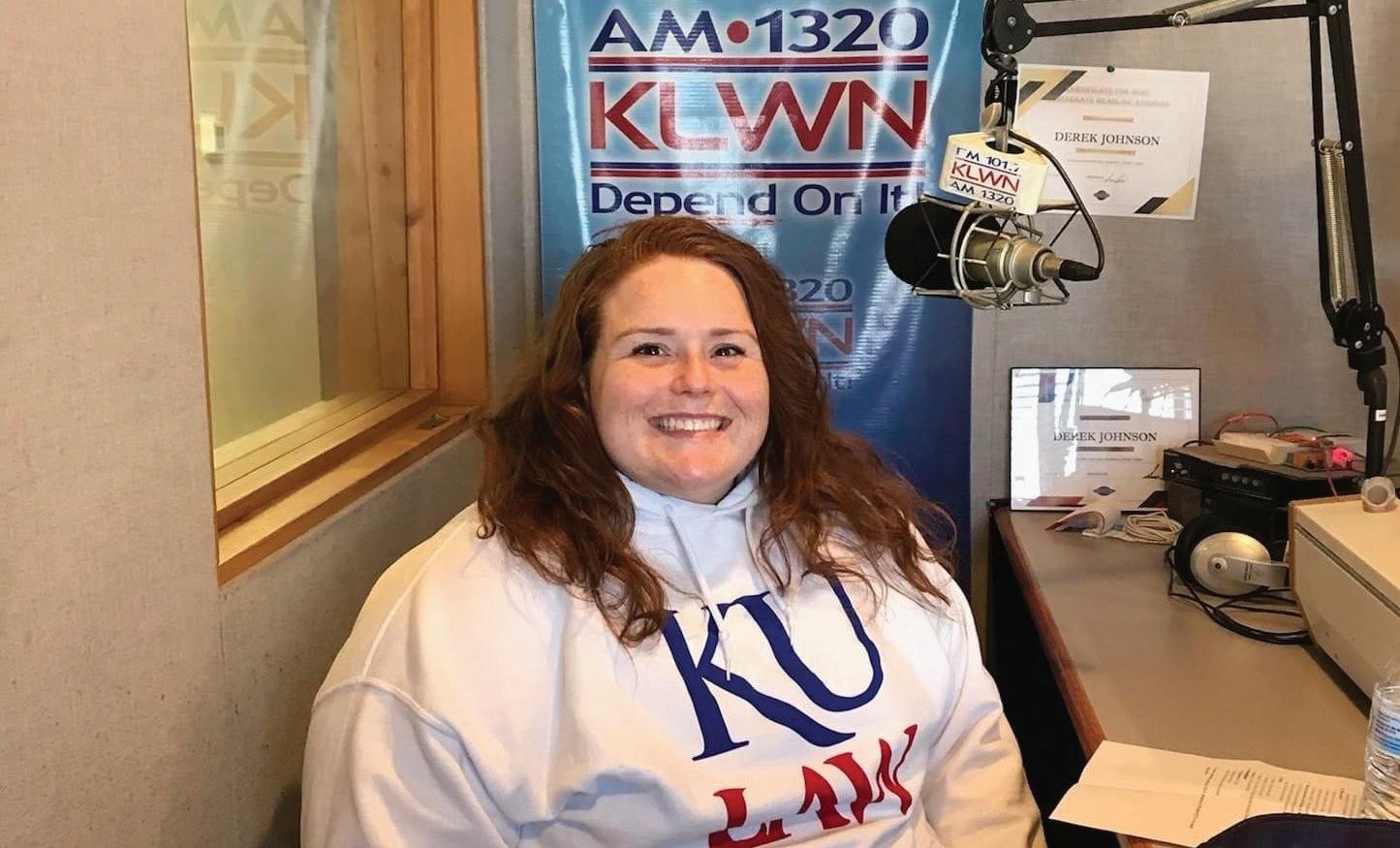
Shannon Greene, president of the Business and Tax Law
participates in a live interview with a local radio station to
and
This past spring, KU Law celebrated 30 years of helping the community with free tax preparation. Led by the president of the Business and Tax Law Society, the Volunteer Income Tax Assistance program (VITA) was created in 1994 to connect law students with the community and help Douglas County residents file their tax returns.
The VITA clinic has remained one of the most visible pro bono projects KU Law offers and is one of the few pro bono projects that is not tied directly to class credit. Students who volunteer for the program receive firsthand experience working with the Lawrence community and developing valuable skills for their future careers.
Since its inception, the VITA clinic has filed more than 6,500 tax returns and has enlisted the help of more than 500 student volunteers.
GIVING BACK
Women in Law raised nearly $20,000 for The Willow and Jana's Campaign during their spring Pub Night.
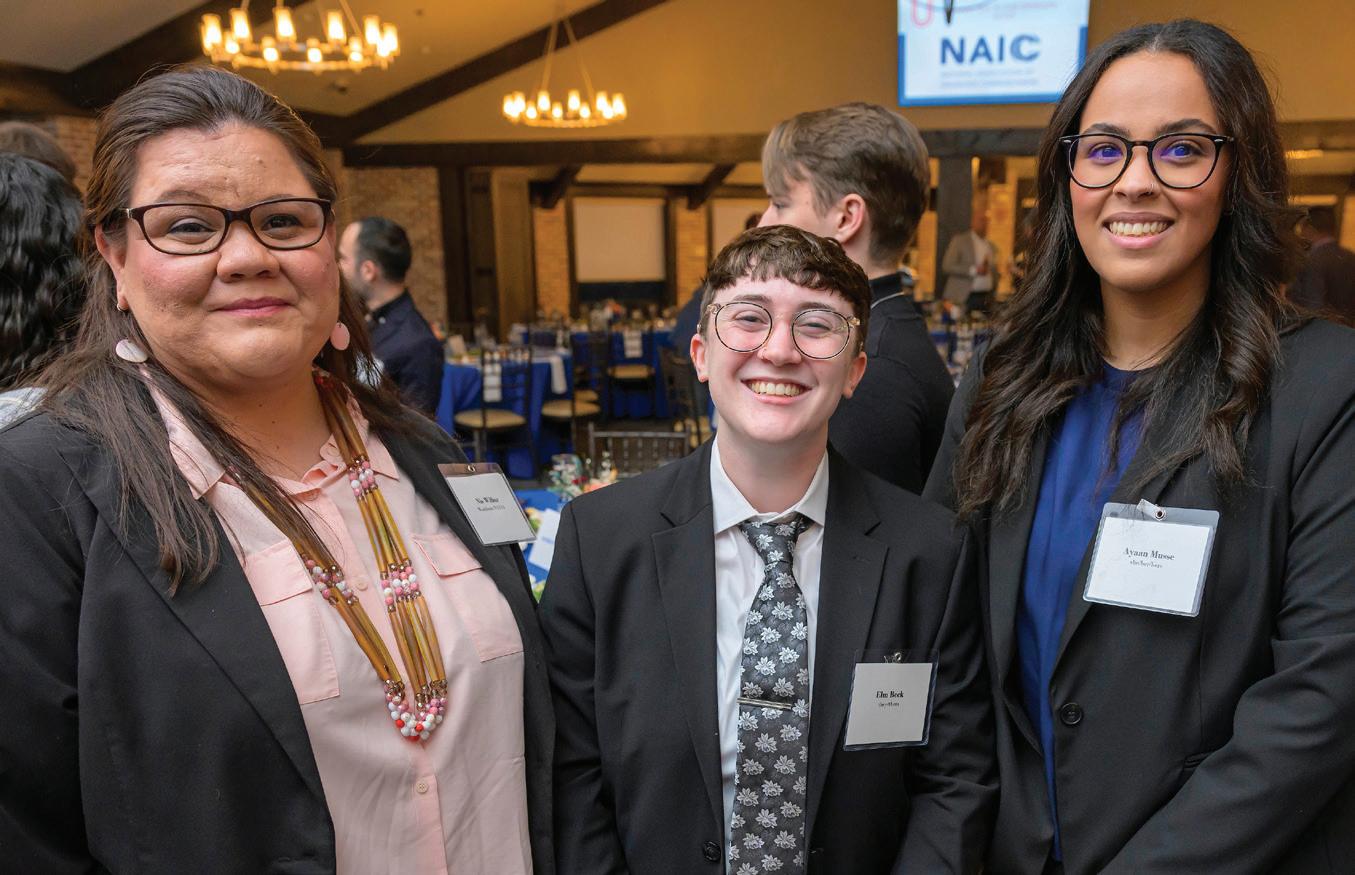
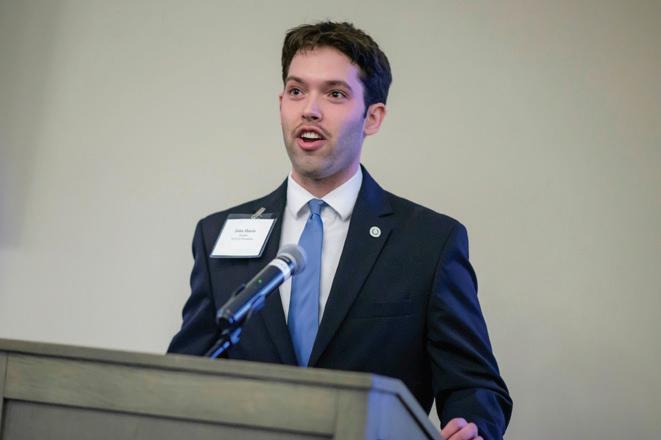
Student interns and volunteers with KU Law's Legal Aid Clinic hosted a Clean Slate Criminal Record Expungement Clinic in February where they met with 19 individuals.


At the 29th Annual Diversity in Law Banquet on March 1, supporters contributed nearly $40,000 to the Diversity in Law Scholarship.
The Native American Law Students Association hosted the 2024 event, a celebration of diversity in the legal profession and fundraiser for student scholarships. Hon. Layatalati Hill, L'12, chief trial court judge for the Oneida Judiciary was the keynote speaker.
The 30th Annual Diversity in Law Banquet is planned for March 7, 2025. Visit law.ku.edu/diversity-banquet for updates.
Overall employment was nearly 96% for the Class of 2023. This is the 10th consecutive year for employment + full-time grad school over 90%.
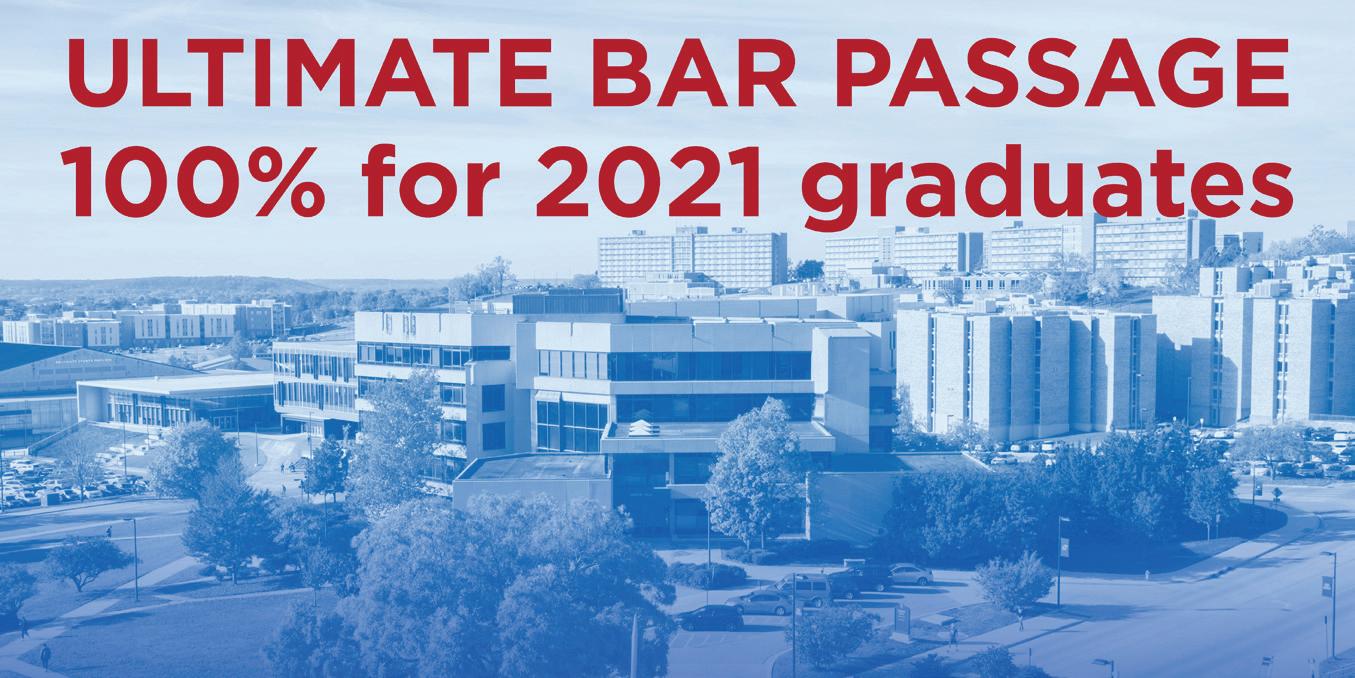
All University of Kansas School of Law graduates in calendar year 2021 who took the bar exam within two years of graduation passed, according to the American Bar Association's compilation report released in March. Among 195 ABAapproved law schools, KU posted the highest rate for ultimate pass rate nationally.
The entering Class of 2027 set a new record for the strongest academic credentials in KU Law’s history.
National Jurist Magazine recognized KU as the No. 6 Best Value Law School in the country.
The ultimate bar passage rate for law schools is a measurement of a graduating class’s bar exam success over a two-year period. Graduates have four chances to take the exam during that two-year period. While passing the bar on the first try is optimal, passing eventually is critical since the ABA maintains an accreditation standard that at least 75% of a law school’s test-taking graduates must pass a bar exam within two years of earning a diploma.
In addition, nearly 92% of KU Law graduates who took a bar exam for the first time during the 2023 calendar year passed. This achievement places KU Law 26th in the nation for first-time bar pass rate.
KU Law graduates who took the Kansas and Missouri bar exams for the first time in 2023 passed at rates well above the state averages. In Missouri, 100% of KU test-takers passed the bar on their first attempt. That showing outpaces by 15.7% the Missouri average of 84.3%. KU graduates taking the Kansas bar exam for the first time in 2023 achieved a 90.5% pass rate, placing the school 13.3% above the Kansas average of 77.2%.
KU Law’s bar passage rates have improved dramatically since the school implemented its Bar Prep Program in 2018. The program offers all students a postgraduation Themis Bar Review course that includes a simulated bar exam and a Multistate Professional Responsibility Examination preparation course. The bar prep program also includes a first-year diagnostic exam that tests students’ understanding of core concepts, a bar exam preparation course for credit during the spring of their third year and assistance from the law school’s director of bar preparation when studying for the bar. KU Law graduates who took the bar exam in 2021 were in the first class to participate in all three years of the Bar Prep Program.
“While other law schools may offer similar programs, they typically build the cost for the prep program into tuition,” said Dean Mazza. “At KU, alumni giving helps graduates clear the final hurdle to becoming a lawyer without the financial pressure of paying for a commercial bar review course."

On Nov. 22, 2024, the Kansas Law Review and the Tribal Law & Government Center at the University of Kansas School of Law hosted a joint symposium and tribal law conference featuring scholars from across the country. “Strategic Litigation Advancing Indigenous Rights” focused on topics such as class actions, tribal lawyering, environmental protection, property rights and criminal law.
Speakers included Bethany Berger, Iowa Law School; Sarah Deer, University of Kansas; Layatalati Hill, Oneida Judiciary; Laura Hines, University of Kansas School of Law; Stacy Leeds, Sandra Day O’Connor College of Law, Arizona State University; Zach Pahmahmie, Prairie Band Potawatomi Nation; Rob Odawi Porter, Cornell Law School; Alex Red Corn, University of Kansas; Raymond Red Corn III, Osage Nation; Darren Root, Prairie Band Potawatomi Nation; Joseph "Zeke" Rupnick, Prairie Band Potawatomi Nation; Whitney Sawney, Native American Agriculture Fund; and Elizabeth Kronk Warner, S.J. Quinney College of Law at the University of Utah.
Scholarship associated with the symposium will be published in a spring 2025 edition of the Kansas Law Review.
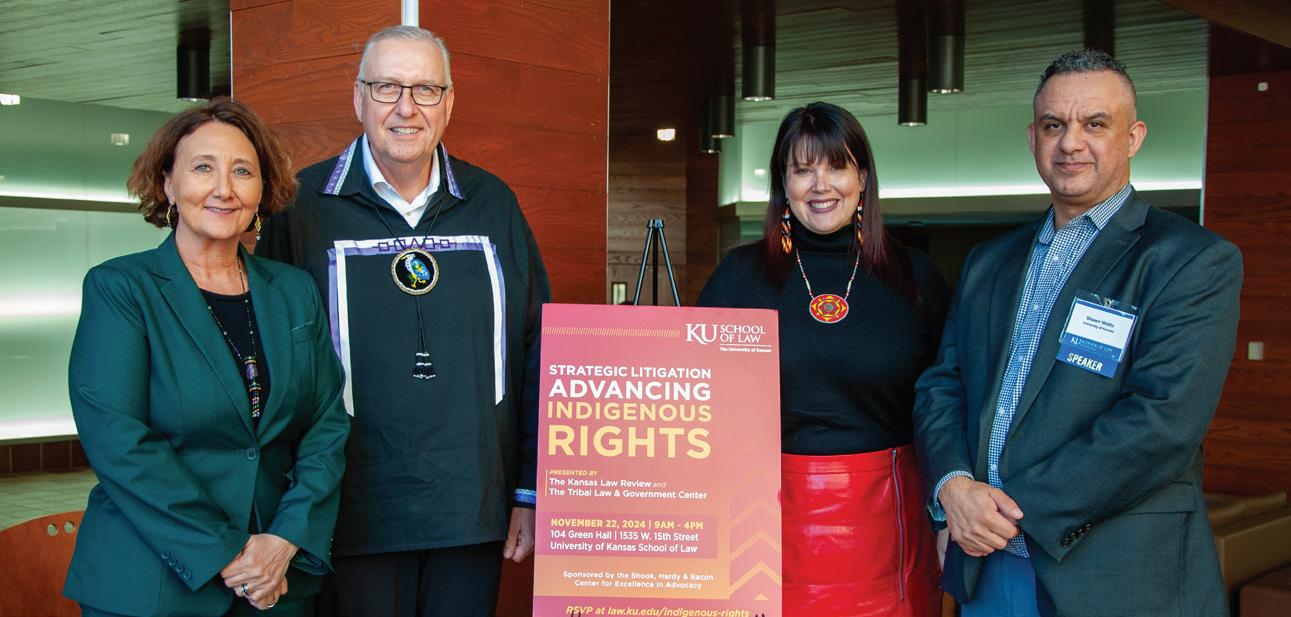
Public Policy Symposium, "A Museum's Purpose: Discussions of Art and Law in 2024," examined the complex issues found in the field of art law. Academics, legal scholars and museum professionals spoke on restitution and repatriation, trade of cultural property and the ethical stewardship of objects in museums.
The symposium was held in Green Hall on Feb. 23, 2024. Presenters included Craig M. Blackwell, Smithsonian Office of the General Counsel; Col. Scott DeJesse, U.S. Department of Defense; Derek Fincham, South Texas College of Law Houston; Michael Hoeflich, University of Kansas School of Law; MacKenzie Mallon, The Nelson-Atkins Museum of Art; Nicholas O’Donnell, Sullivan & Worcester; Lauren Van Schilfgaarde, UCLA School of Law; and Jonathan Zwibel, U.S. Customs and Border Protection.
The next Law Journal Symposium will be on Feb. 28, 2025. Learn more at law.ku.edu/ law-journal
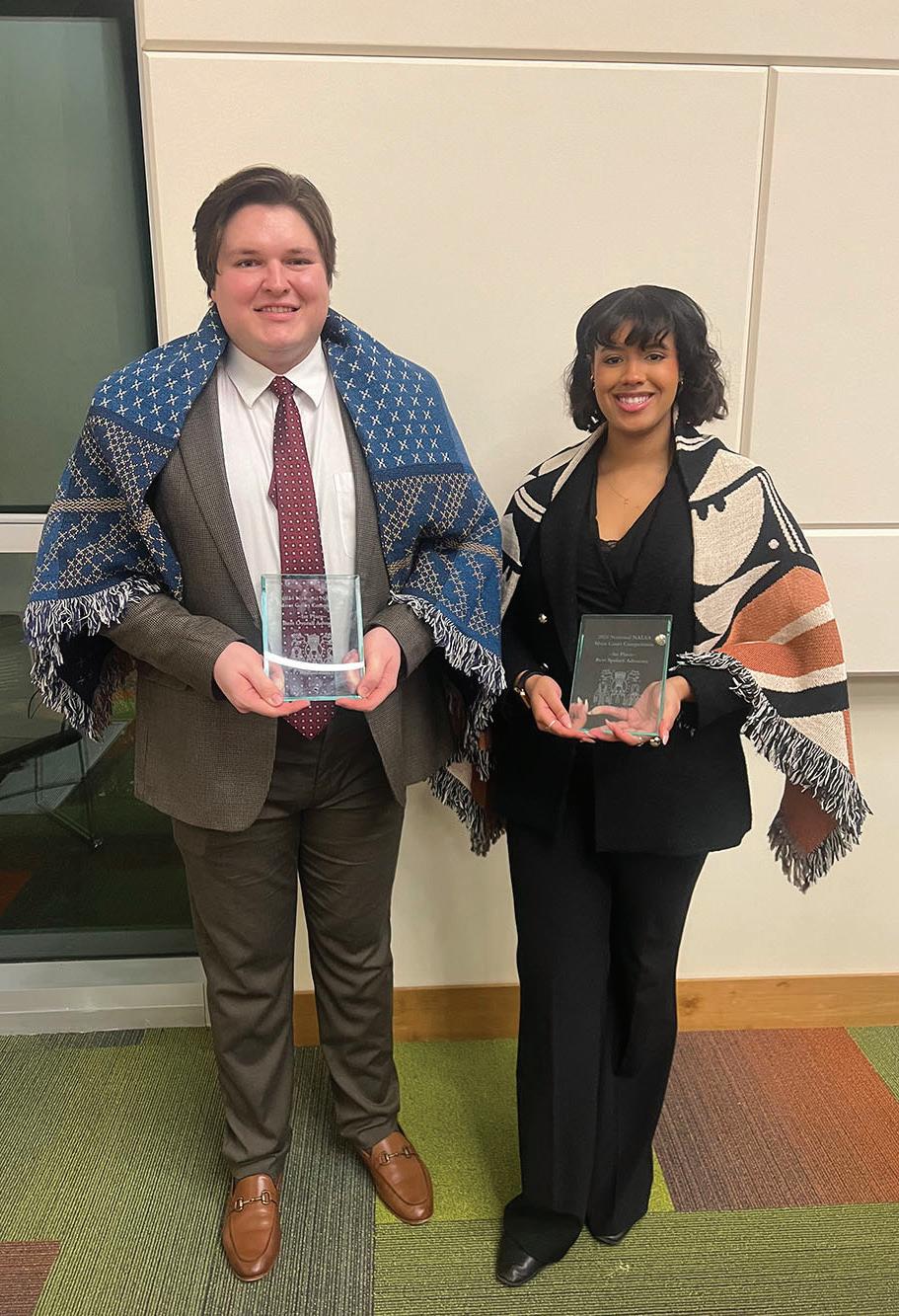
For the transactional law competition program, 2024 was a year of unprecedented and phenomenal success. KU Law students competed in four national competitions winning three of them: UCLA, Wayne State and William & Mary.
KU was represented by two teams at the UCLA Transactional Law Competition. Gold Team members
Kathleen Siderchuk, Cayden Sears, Sydney Hoffman and Violet-Brull won best overall for the second year in a row.
Jackie Jeschke and Alli Baden traveled to Southfield, Michigan, for the Wayne State Taft Transactional Law Competition and came away with both of the top prizes - best negotiation and best draft.
Matthew Firnhaber and Amanda Brauninger competed in the William & Mary Colonial Cup Transactional Law Competition in Williamsburg, Virginia taking home the award for best draft.
Competition teams are supported by the Polsinelli Transactional Law Center housed at KU Law.
The University of Kansas School of Law’s moot court program is 25th in the nation, according to rankings published by the University of Houston Law Center.
KU Law has finished in the top 30 nationally for the past nine years and relies on the support of alumni who help coach teams and mentor students.
For the fourth consecutive year, KU Law won the National Native American Law Students Association Moot Court Competition. The winning team composed of Jade Kearney and Justin Shock brought home the award in February 2024.
More highlights from the 2023-2024 season:
• Karlie Bischoff and Hailey Reed competed in the Jerome Prince Memorial Evidence Competition in Brooklyn, New York. The pair argued all the way to the final four. The same pair also won the second-best brief in the Hunton Andrews Kurth National Championship, an invitation only competition to the top 16 programs in the nation.
• Sam Crawford and Arielle Jacobs represented KU Law at the annual Shapero Bankruptcy Moot Court Competition in Detroit. They finished in second place, and Jacobs received a best advocate award.
• Lauren Bretz and Skylee James also represented KU Law at the NNALSA Moot Court Competition. They were quarterfinalists and took home the second-best brief award.
• John Langmaid and Anthony Leeks received the award for second-best brief in the regional competition of the Stetson International Moot Court Competition.
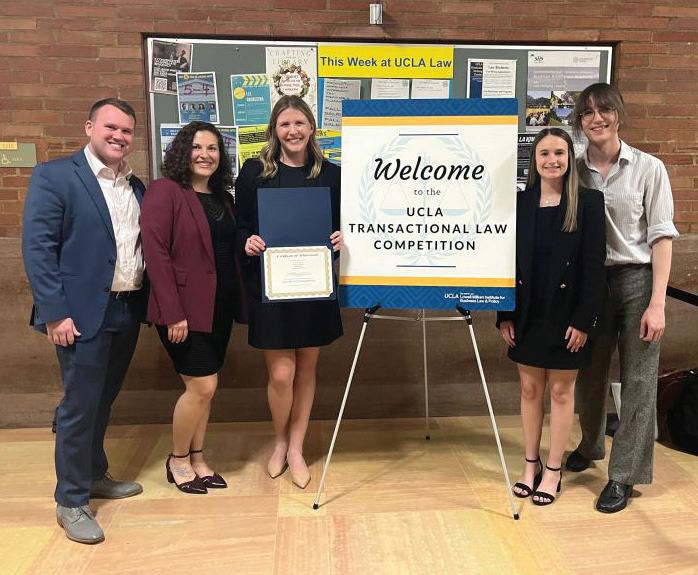
MOOT COURT PROGRAM CONTINUES TOP-30 RANKING
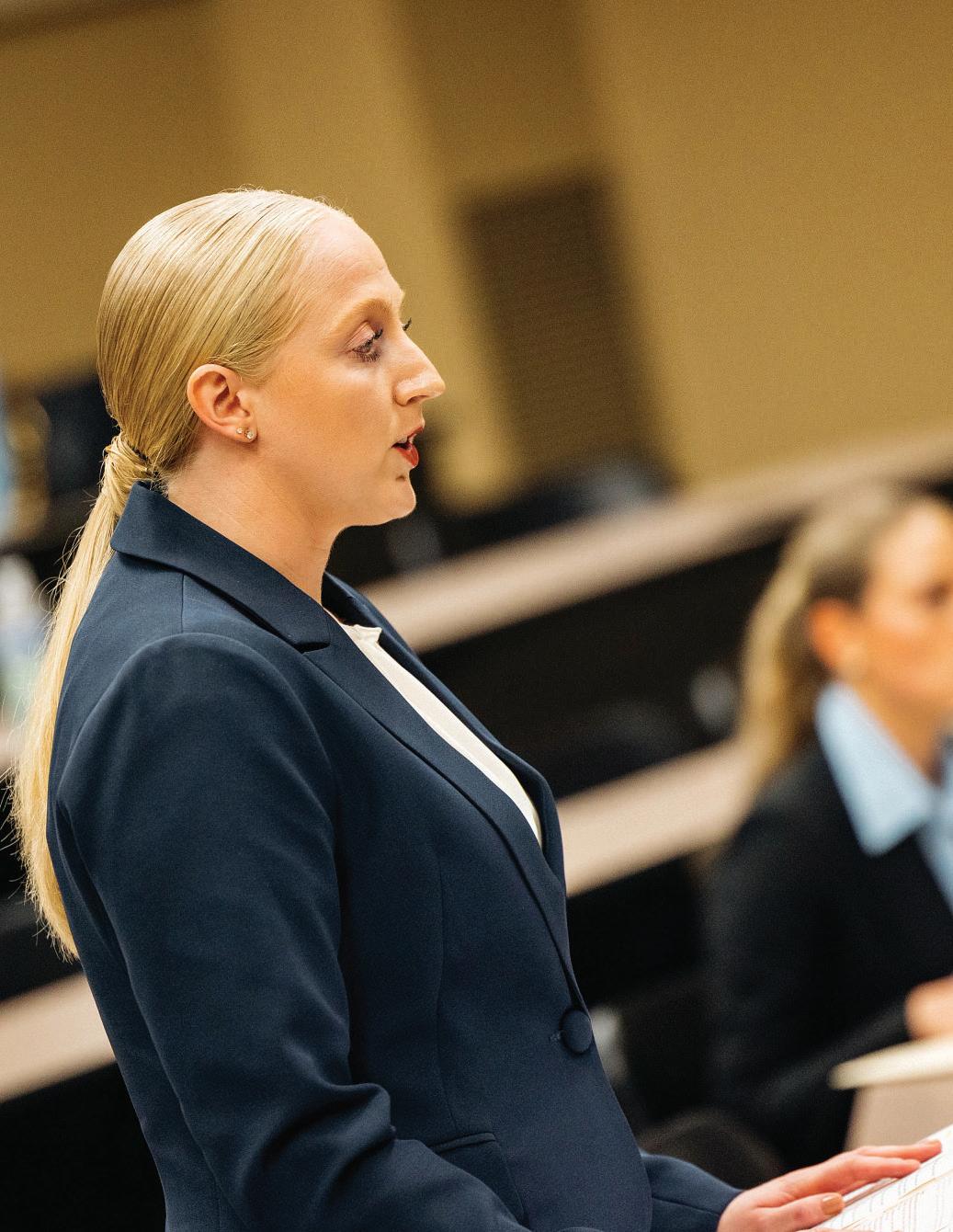
delivers an argument during the final rounds of KU Law's In-House Moot Court Competition.
KU Marketing

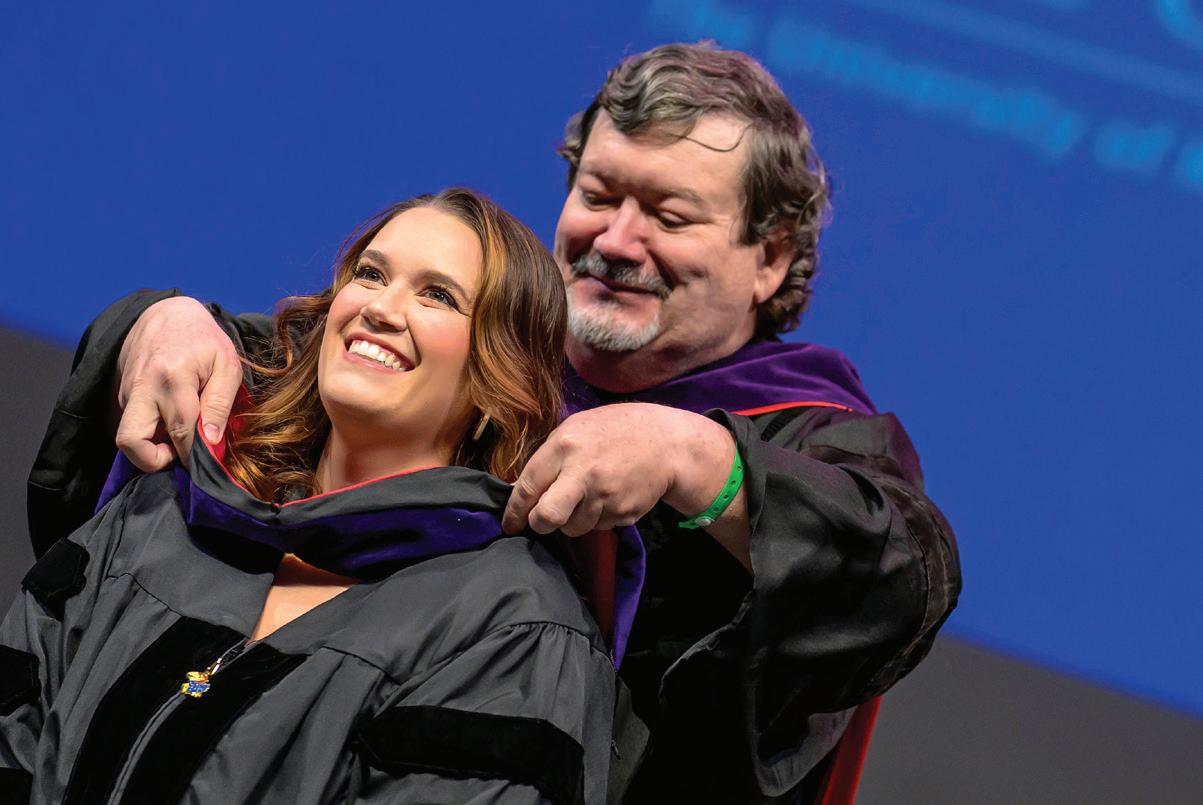
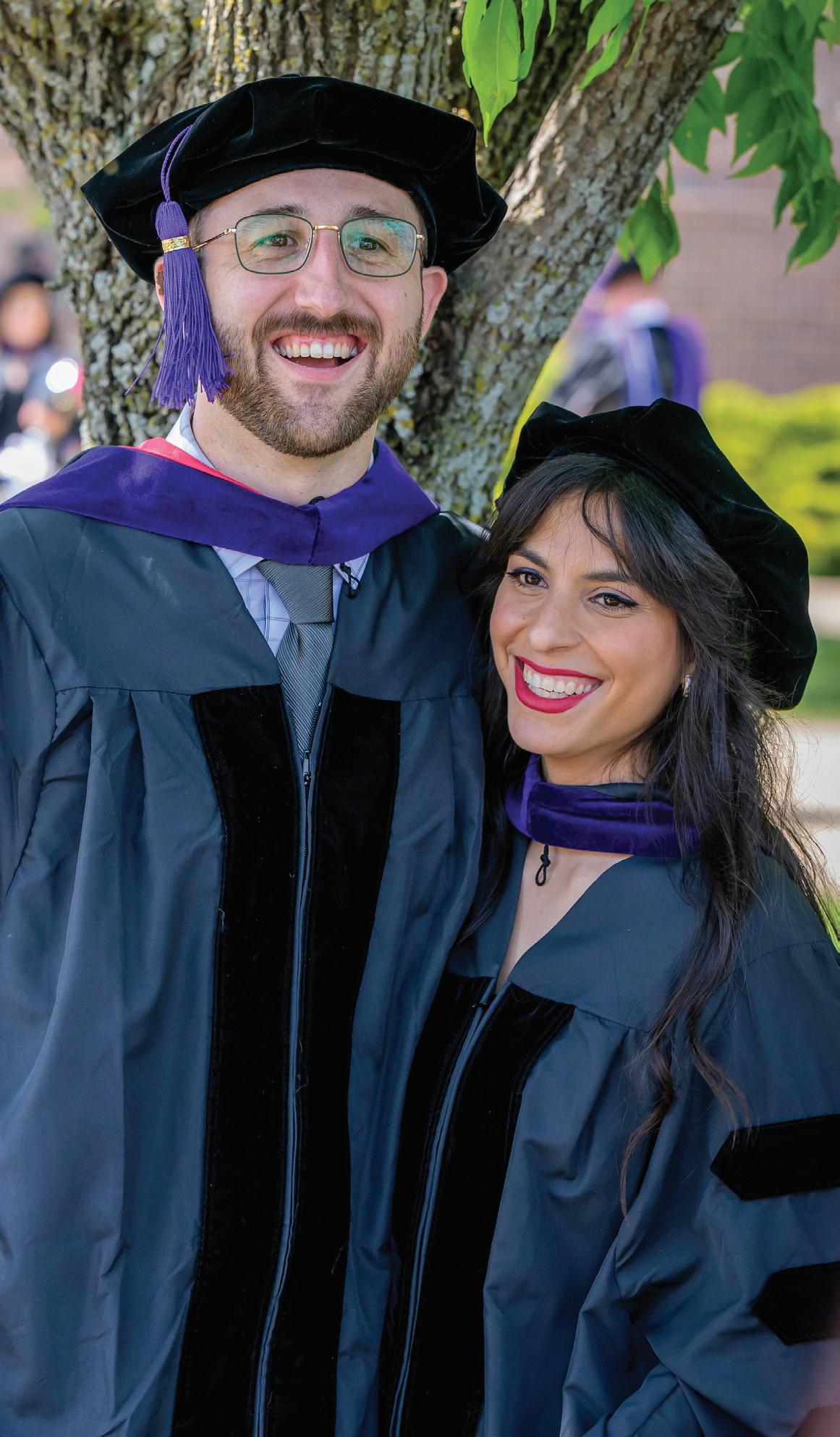
ORDER OF THE COIF
Chris Birzer
Karlie Bischoff
Abbey Brower
Brooke Brownlee
Drew Davis
Natalie Jabben
Hayley Koontz
Aubrey Kramer
Hailey Reed
Elizabeth “Libby” Rohr
Collin Studer
Justin Watkins
SAMUEL MELLINGER SCHOLARSHIP, LEADERSHIP & SERVICE AWARD
Elm Beck
Karlie Bischoff
WALTER HIERSTEINER OUTSTANDING SERVICE AWARD
Abbey Brower
JUSTICE LLOYD KAGEY LEADERSHIP AWARD
Collin Studer
JANEAN MEIGS MEMORIAL AWARD
Anthony Leeks
FACULTY AWARD FOR OUTSTANDING ACADEMIC ACHIEVEMENT
Chris Birzer
LAW CLASS OF 1949 AWARD FOR LEADERSHIP
Anshul Banga
Olivia Almirudis Schneider
C.C. STEWART AWARD IN LAW
Chris Birzer
ROBERT F. BENNETT STUDENT AWARD
Jackie Jeschke
WILLIAM L. BURDICK PRIZE
Michael Maffry
MARY ANNE CHAMBERS SERVICE AWARD
Jamie Gallagher
GEORGE GARY DUNCAN SCHOLASTIC IMPROVEMENT PRIZE
Vincent Amiri
ROBERT E. EDMONDS PRIZE IN CORPORATION & SECURITIES LAW
Cayden Sears
RAYMOND GOETZ LABOR AND EMPLOYMENT AWARD
Abbey Brower
HERSHBERGER, PATTERSON, JONES & ROTH ENERGY LAW AWARD
John Langmaid
BRUCE R. HOPKINS AWARD FOR NONPROFIT EXCELLENCE
Ryan Love
W. ROSS HUTTON LEGAL AID AWARD
Elm Beck
Makaela Stevens
JAMES P. MIZE TRIAL ADVOCACY AWARD
Angelique Margve
Tyler Schembri
CHIEF JUSTICE LAWTON
R. NUSS AWARD FOR EXCELLENCE IN ADVOCACY
Alex Nelson
PAYNE & JONES AWARDS
Trey Bohlender
Kaegan Cowan
Thea Hack
Allison Haggerty
Charlie Ketchum
Hannah Levy
Keali Myrick
Alec Nee
Alex Nelson
Evan Norkey
Liz Oltjen
Madi Stapleton
POLSINELLI ADVOCACY AWARD
Jade Kearney
Hailey Reed
POLSINELLI MOOT COURT AWARDS
Winning Teams: Skylee
James & Lauren Bretz, Leah
Stein & Karen Campbell
Finalists: Quan Nguyen & Gabby Phillips, Joshua Lollar & Naomi Franklin
Best Oral Advocate: Skylee
James
Second Best Oral Advocate: Quan Nguyen
Best Brief: Lauren Bretz, Skylee James
Second-Place Brief: Karen Campbell, Leah Stein
THE DRU MORT SAMPSON CENTER FOR DIVERSITY & INCLUSION AWARD OF DISTINCTION
Christy Harris
SHAPIRO AWARD FOR BEST PAPER ON LAW & PUBLIC POLICY
Leah Stein
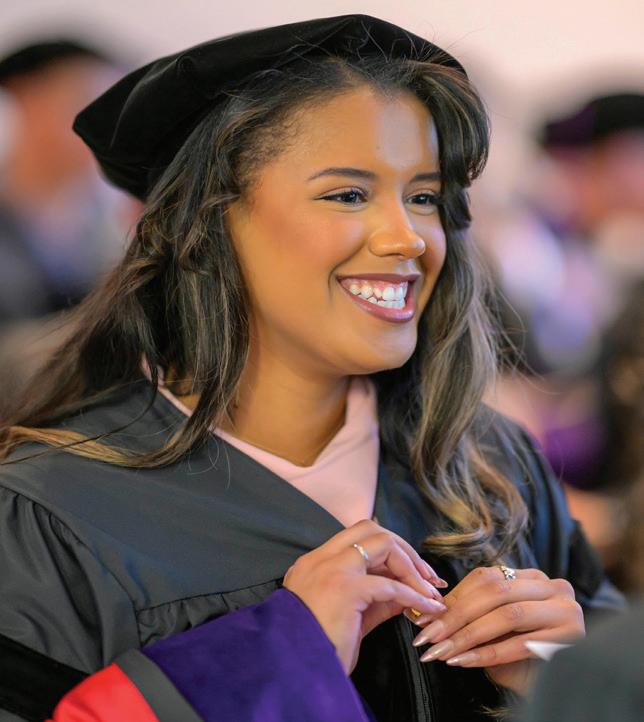
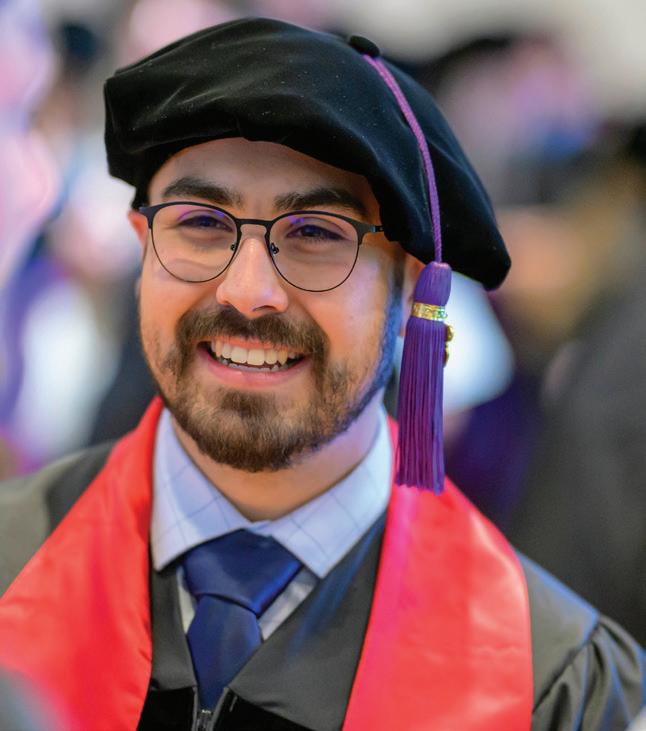





As technology transforms every facet of our lives, the legal profession plays a critical role in addressing its challenges and opportunities. At the University of Kansas School of Law, our alumni and faculty are leading the charge in this ever-evolving landscape. This series spotlights Jayhawk lawyers thriving in technology-focused careers, as well as professors who are preparing the next generation of legal minds through innovative courses. Together, they illuminate how KU Law is shaping the future of law in a tech-driven world.
STORIES BY CASEY BACOT AND JULIE FRANCISCO
In the bustling halls of the University of Kansas School of Law, Professor Andrew W. Torrance is redefining the future of legal education. Known for his academic versatility and engaging teaching style, Torrance has established a groundbreaking class that melds traditional legal principles with cutting-edge technology: Legal Analytics.
From his early days in Toronto, Canada, to earning a Ph.D. in genetics at Harvard University and a J.D. from Harvard Law School, Torrance’s journey into the legal profession has been anything but conventional. His background has uniquely positioned him to approach legal education with an interdisciplinary flair.
During his Ph.D. studies, Torrance developed a passion for environmental issues and began considering how he could make a meaningful impact on the world. During a class on biodiversity taught by renowned biologist professor, E.O. Wilson, a guest speaker named Norman Myers, himself also a famous biologist, encouraged him to pursue a career in law, remarking that "those guys have the real power."
Before becoming a professor, Torrance navigated the world of intellectual property law at Fish & Richardson P.C. in Boston, one of the leading global firms in the field. While there, he focused on patent law, including prosecution and litigation, while finding time for pro bono work for an environmental group based in the U.S. Virgin Islands. He later became in-house patent counsel for Inverness Medical Innovations, now
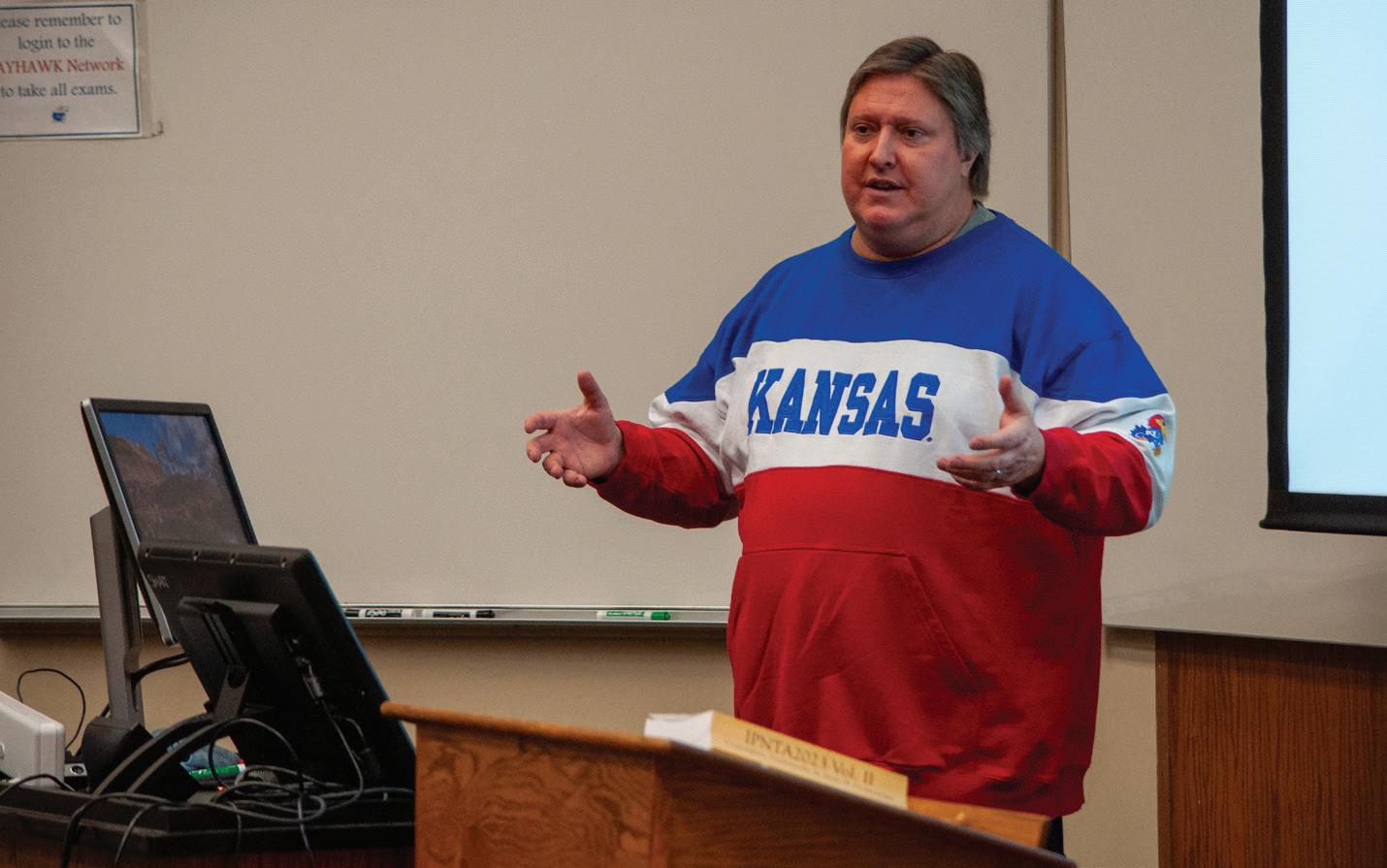
Alere, and worked on patent matters, including contracts and licenses, for the company all around the world.
A job posting in the Chronicle of Higher Education for an intellectual property professor with a biological science background drew Torrance to KU. He joined KU Law in 2005, bringing with him a vision for integrating law, science and innovation.
“I have a wonderful memory of staying at the SpringHill Suites by the Bowersock Dam with my family, and Dean Steve McAllister coming and meeting us for breakfast, and literally bouncing my baby boy, Darwin, on his knee,” he said. “And I thought, if the dean of this law school is willing to show such care for my children, this is a great place to be.”
Since joining the KU Law family, Torrance has taught more than ten different classes, all of which he
designed himself: Intellectual Property, Patent Law, Biolaw, Food and Drug Law, Biodiversity Law, several graduate seminars, and, most popularly, Legal Analytics.
In 2018, Torrance introduced the idea of a class to Dean Mazza that directly addresses one of the legal profession’s emerging challenges: the integration of data, technology and computation into legal practice. The Legal Analytics course equips students with essential skills in data analysis, statistical reasoning and artificial intelligence (AI), topics often neglected in traditional law courses. Designed to demystify quantitative methods for students often intimidated by numbers, the course aims to make these tools accessible and practical for legal applications.
“I thought that there was a place for a class that would explicitly teach law students how to understand and
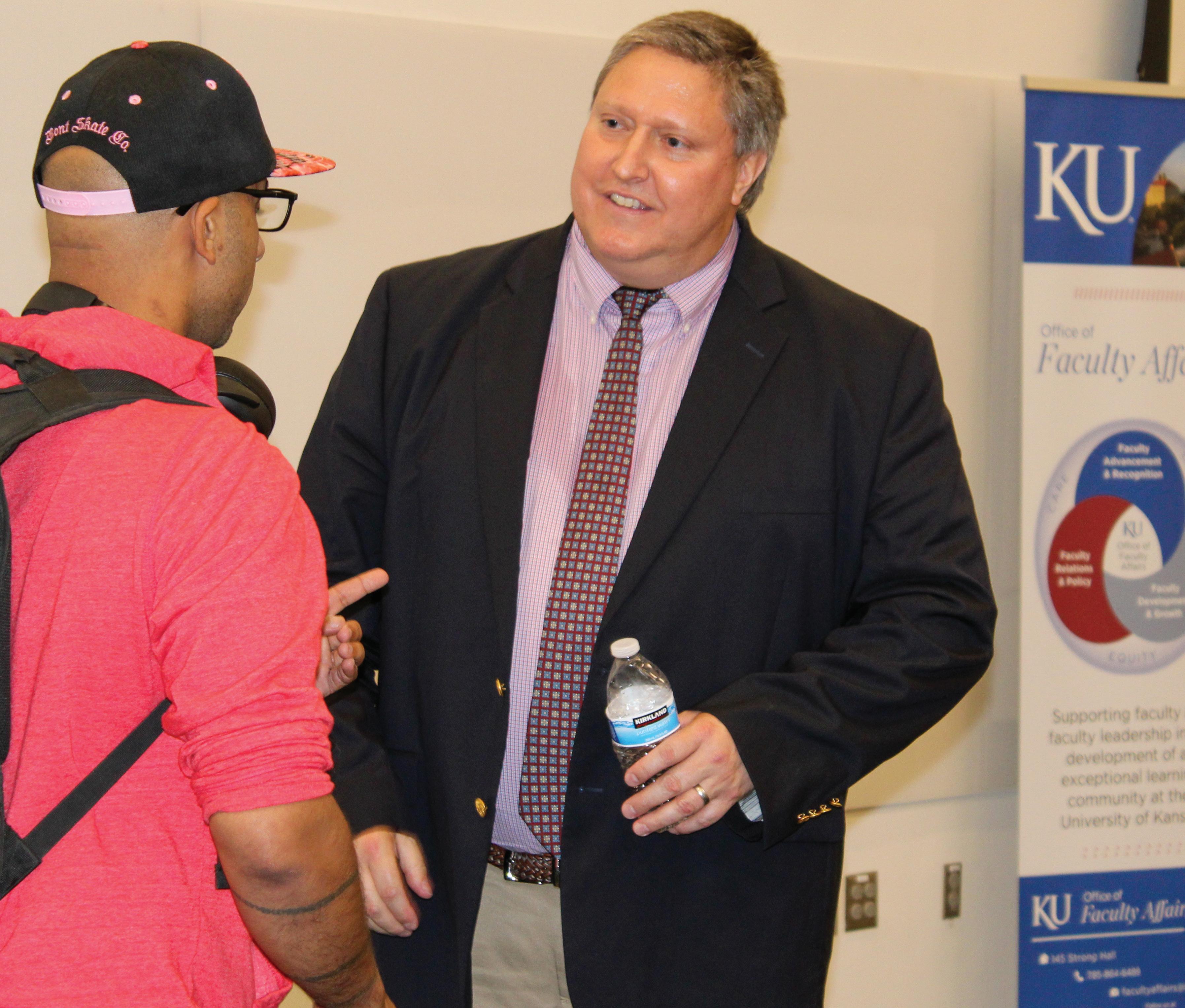
how to effectively use quantitative techniques,” he said. “But I also realized that I had to do it in a way that was interesting and fun, and that didn't scare them.”
Through engaging, hands-on individual and team projects, students delve into topics like probability, data cleaning, interpreting real-world datasets and mastering AI. One early exercise involved analyzing national human trafficking data, challenging students to identify patterns, gaps and legal implications. This practical approach not only builds technical
skills but also fosters critical thinking about data quality and its impact on legal outcomes.
The class’s scope extends beyond statistical analysis, incorporating advanced legal software and AI tools. Students work with programs like Blue Jay Legal, which offers tax law insights; Lex Machina, a tool for profiling judges and predicting litigation outcomes; DoNotPay, an AI that automates parking ticket challenges; and PatentVector, a powerful patent analytics system powered by network science and neural networks. These tools enable students to see how technology can enhance legal strategy and decision-making.
The course’s focus on AI not only prepares students for current technological trends but also encourages them to think critically about the role of AI in justice. Torrance’s motto for the class underscores this philosophy: “Be the lawyer who masters AI, not the lawyer who is run over by it.”
Legal Analytics has quickly gained traction, becoming one of KU Law’s largest non-first-year classes. Its success highlights a growing recognition of the importance of tech-savvy lawyers in every legal field. Torrance believes that these concepts will eventually permeate the broader curriculum, enhancing areas like torts, property and criminal law.
“When I took the class, it was at 8 a.m., it was the most enrolled in elective class that semester,” said former KU Law student Amy Allshouse. “I think that says how
“ They'll have a competitive advantage over lawyers from law schools that fail to teach this vital subject, allowing them to achieve more success, enjoyment and fulfillment in their careers.”
important it was and how many people found it really interesting how lawyers can use data in cases. It's just something that we don't normally get taught.”
Torrance also sees an opportunity to expand these lessons to alumni and practicing lawyers. Since 2019, he has conducted educational sessions on legal analytics, including quantitative techniques and AI, for state and federal judges, city and state bar associations and law firms.
“The way that I think about legal education is that the three years of being a law student is just the beginning. Alumni should be able to dip back into the law school for insights, training and refreshment of their skills during their whole careers,” he said.
While championing AI’s potential, Torrance is equally mindful of its risks.
“Lacking an appreciation of what AI is good at and what it's bad at is a terrible blind spot for an attorney,” he said. “I worry about people who will get sucked into using it without understanding how it works. They will misuse it. And, what's worse, sometimes they'll have no idea that they have misused it.”
A key component of the course is teaching students to discern reliable data from flawed or misleading information. This skill is particularly vital in a field where visual aids like graphs can sway court decisions. Torrance’s class includes exercises on critiquing and creating fair representations of data, ensuring students can challenge deceptive presentations effectively.
By the end of the semester, Torrance’s students leave with a comprehensive toolkit: the ability to analyze and interpret data, use advanced software and integrate these skills into practical legal contexts. As an example, his 2023 Legal Analytics students not only drafted contracts for the purchase of a falcon, including robust warranty sections, they also worked closely with a KU computer science master’s student to create a machine learning program that helped U.S. military veterans appeal denials of benefits. In this year’s class, every student will learn how to code up their own software program for solving a legal problem of their choice – with help from AI, of course. For many, the class transforms their perspective on law and technology.
This impact extends beyond the classroom. Alumni like Blake Ronnebaum, L’20, have reported its long-term benefits in their careers.
Ronnebaum studied chemical engineering at Kansas State University and was inspired by his sister-in-law to attend KU Law. He took Professor Torrance’s class the first semester it was offered in 2018. Now an associate in Polsinelli’s Chemical Science Patent Prosecution practice in Kansas City, he says he utilizes the lessons he learned in Legal Analytics daily.
“The people I argue with are also scientists and engineers, and have, in many cases, a better understanding of data and statistics than I do. I think it’s helpful to really scrutinize the data that I've been putting in my response to the patent office and scrutinize the data the patent office is relying on to
reject my client's applications,” he said. “I think it's made me a better lawyer in that respect.”
Through Legal Analytics, KU Law is ensuring its students are ready to meet the demands of a legal field increasingly shaped by technology and data analysis.
“I think it was one of the best courses that I could have taken throughout all of law school, because it prepared us for what is happening now, which I figured was 20 years away,” said Ronnebaum. “I commend Professor Torrance and the law school for taking it on and preparing us at a time when we didn't realize that it was going to be so relevant.”
As technology continues to reshape the legal profession, Torrance’s work demonstrates how education can stay ahead of the curve. His class is not merely about mastering tools but fostering a mindset of adaptability and innovation.
“I think that if we could expose students to these ideas and skills when they're in law school, so they know that they're available, master their use and develop a rigorous and thoughtful approach to applying them, this will all bear tremendous fruit when those students begin to practice law,” Torrance said. “They'll be better lawyers. They'll be more efficient lawyers. They'll be more successful lawyers. In short, they'll have a competitive advantage over lawyers from law schools that fail to teach this vital subject, allowing them to achieve more success, enjoyment and fulfillment in their careers.”
—Casey Bacot

Laura Clark Fey, L’92, has built an extraordinary career at the intersection of global data privacy, information governance and artificial intelligence (AI). As Principal at Fey LLC, a global data privacy and information governance law firm, and an adjunct professor at KU Law, she is at the forefront of one of the most rapidly evolving fields in law. Initially set on attending a university in Texas, she changed course after a friend invited her to visit KU during high school.
“The second I stepped foot on campus, I knew that I wanted to go to KU,” she said.
With her undergraduate and law degrees in hand, Clark Fey began her legal career as a trial attorney with the U.S. Department of Justice, handling cases in Houston and collaborating with the Civil Division in Washington, D.C. Eventually, family considerations led her to a large law firm in the Midwest, where she spent 13 years — first as an associate and later as an equity partner.
Specializing in litigation and trial work, she excelled in high-stakes litigation, but found the demands of multi-month trials and work travel challenging as a parent of young children.
Seeking a better balance, she pivoted to proactive consulting, focusing on e-discovery and information governance. It was early in this period, after having the opportunity to assist a French client with European privacy compliance, that Clark Fey's fascination with European privacy laws began.
“The legal framework and the cultural views on personal data in Europe are very different from those in the United States,” she said.
Immersing herself in this niche, Clark Fey ultimately shaped her practice around global privacy and compliance, helping multinational corporations navigate complex regulations like the European Union’s General Data Protection Regulation (GDPR). Today, her practice spans global data privacy, AI-related
compliance and risk management.
“Privacy became a big deal with laws like the GDPR, the CCPA in California and other global and state laws that followed,” she said. “Over the past couple of years, AI has become a significant area of focus as well, and my work helps clients meet their obligations and manage risks in this emerging field.”
As an adjunct professor at KU Law, she teaches Global Data Protection in the Age of AI, a course that evolved from focusing solely on global privacy laws to incorporating AI in response to rapid technological advancements. The course covers critical topics such as global privacy frameworks, data usage by governments and corporations, and the ethical and legal implications of AI.
“There are so many parts of the law that intersect with AI,” she said. “From privacy and cybersecurity to copyright and product liability, the class explores how to manage these risks in a rapidly changing landscape.”
Interest in the course has increased in the five years since she has been teaching.
“This past semester, enrollment was three or four times higher than before,” she said.
Clark Fey encourages all law students to familiarize themselves with AI, emphasizing its transformative impact on the legal profession.
“Even if you’re not specializing in AI, you need to understand the tools and risks associated with its use,” she said.
In her consulting work, Clark Fey thrives on collaboration. Whether conducting privacy assessments, drafting policies or guiding clients through data breaches, she emphasizes practical solutions tailored to business needs.
“It’s about assessing relevant privacy, security, and business risks, and then developing and implementing phased action items designed to reduce risk and improve compliance in a manner that takes into account business needs and goals,” she said.
Her work often involves helping organizations navigate urgent situations, such as data breaches or phishing attacks. She also highlights the importance of training employees to understand and implement policies.
“Regulators expect policies and procedures, but the real key to compliance is ensuring employees understand why they’re important and how to comply,” she said.
For Clark Fey, staying ahead in a fast-moving field requires relentless learning. She advises aspiring privacy and AI lawyers to embrace a passion for learning and develop strong analytical skills.
“I focus exclusively on privacy, AI and information governance,” she said. “This specialization helps me keep up with the rapid pace of change.”
Among her many achievements, Clark Fey finds her greatest fulfillment in mentoring.
“What I’m most proud of is encouraging law students and lawyers who may feel overwhelmed,” she said. “Seeing someone regain confidence and thrive is incredibly rewarding. I have been very fortunate to have had incredible mentors during law school and throughout my legal career, starting with my first semester Torts Professor Reggie Robinson, and it is really important to me to support and mentor law students and other lawyers as well.”
Through her groundbreaking work and dedication to teaching, she is shaping the future of data privacy and AI law while inspiring the next generation of KU Law graduates to embrace emerging opportunities.
—Julie Francisco
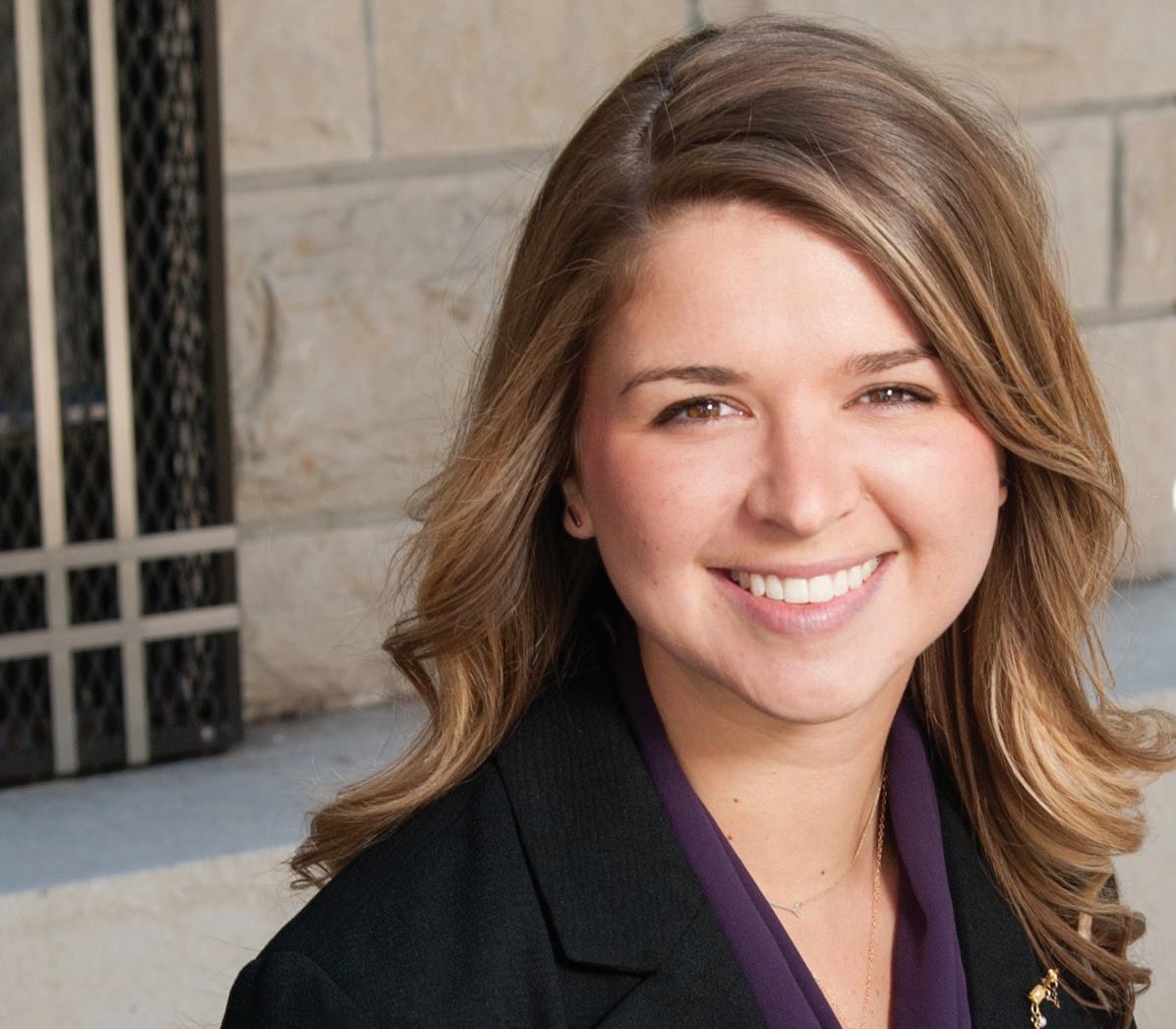
For Jordan Reinhardt, a 2020 graduate of the University of Kansas School of Law, the path to a legal education and beyond was both familial and exploratory.
Originally from Kansas City, Reinhardt’s decision to attend KU Law was influenced by her mother, Cheryl, a KU Law graduate from the Class of 1992. Yet, Reinhardt’s trajectory diverged from the traditional legal path, leading her to a dynamic career in the tech industry.
Reinhardt’s journey to law school began during her junior year at Kansas State University. With options ranging from graduate school to entering the workforce, she ultimately chose KU Law, drawn by its proximity to her family home and its strong reputation. Initially, she envisioned a future in public policy and was intrigued by KU Law’s 6th Semester in D.C. program. However, as her law school experience unfolded, Reinhardt’s interests shifted.
Between her first and second year, she worked with the Medical-Legal Partnership Field Placement Program at KU Med, gaining exposure to public interest law. She also participated in the Judicial Field Placement Program as a legal intern for Judge Daniel Crabtree.
“That experience alone was worth my tuition,” Reinhardt said.
These opportunities helped her realize that her passion lay not in traditional litigation, but in roles that leveraged her creativity and business acumen.
A pivotal moment came when a friend encouraged Reinhardt to connect with the CFO of Pepper, a Kansas City-based startup specializing in software solutions for smart devices. That conversation led to a summer internship, where Reinhardt explored various aspects of the business, including product management and marketing. The experience proved transformative, paving the way for her
current role as a product manager at Pepper.
“What I do on a daily basis is act as the catalyst for any work that software development teams do,” she said.
From setting priorities for developers to serving as a liaison between the business and technology sides of the company, Reinhardt’s role is dynamic and multifaceted.
“The skills I learned in law school—researching, writing, analyzing complex issues—are incredibly valuable. I’m constantly learning, which is something I loved about law school.”
At Pepper, Reinhardt’s work involves designing and launching new features for smart devices, often under tight deadlines. She cites a major client project in 2021 as a career highlight. Despite an ambitious timeline of nine months to complete what was originally estimated as a 15-month endeavor, the team delivered.
“I’m proud of that accomplishment and the collaboration it required,” she said.
While she occasionally handles legal tasks—such as guiding trademark applications—her primary focus remains on product management.
For law students interested in tech, Reinhardt emphasizes the importance of curiosity and humility. She also encourages students to network boldly.
“Show up authentically and be confident in what you bring to the table, even if it’s not technical expertise,” she said. “Cold call people, introduce yourself, and ask for conversations. You never know where it might lead.”
Reinhardt credits her KU Law experience for teaching her how to communicate effectively with diverse audiences.
“Regardless of who I’m working with, I rely on a formula for analyzing issues and tailoring solutions to my audience—a skill honed during law school,” she said.
As a nontraditional lawyer thriving in a tech environment, Reinhardt has learned to embrace her unique path.
“I was self-conscious about not taking the traditional route,” she admits. “But I’m proud of trusting my instincts and committing to a career that aligns with my personality and goals.”
She underscores the importance of maintaining relationships with classmates and colleagues.
“The relationships you build in law school are just as valuable as the education. Don’t be afraid to stay in contact and make that a priority.”
Her story serves as an inspiring example of how to forge a fulfilling and unconventional career path for those willing to think outside the box. —Julie Francisco
In a rapidly advancing world, technology and the law are converging in unprecedented ways, creating challenges and opportunities for policymakers, businesses and legal professionals. For one KU Law alumnus, this dynamic landscape has defined a fulfilling career in government relations and technology policy, illuminating state legislatures' vital role in shaping the future.
Hailing from the Kansas City area, Max Rieper, L’03, initially pursued a political science degree at Ohio State University. Drawn back to Kansas, he enrolled at KU Law to be closer to home and found the experience transformative.
He initially considered leaving law school after his first year, as he realized litigation wasn’t his calling. However, a conversation with a faculty member changed everything. He discovered KU Law’s robust public policy program and dove into opportunities such as the Public Policy Clinic with Professor Richard Levy and internships with the Kansas House of Representatives and the Kansas Department of Health and Environment.
“I got to see how laws are made, and I much preferred the creation of law instead of the interpretation of law,” Rieper said.
Shortly after graduating, he joined MultiState Associates, a
government relations firm specializing in state and local politics. Over two decades, he’s developed expertise in tracking legislation, analyzing trends and advising clients on issues ranging from consumer privacy to artificial intelligence (AI).
Rieper’s expertise in technology policy emerged serendipitously. About eight years ago, he began working on privacy issues, a relatively niche field at the time. However, the landscape shifted dramatically in 2018 when Europe’s General Data Protection Regulation (GDPR) inspired California’s Consumer Privacy Act, prompting other states to follow suit, creating a complex regulatory environment for businesses
“I think we're all trying to understand the complexity of this technology and we're trying to understand what regulation is going to look like.”
in terms of data protection, child online safety and AI, to name a few.
“Where we're seeing policy getting done is in the states. The adage is, these are our 50 laboratories of democracy, and so we're going to see a lot of experimentation with what works and what doesn't work,” he said. “Congress is slow to move. It's going to be up to states to take the initiative to tackle some of these pressing issues.”
Anticipating the growing fascination with AI law, Rieper played a key role in developing multistate.ai, a platform designed to help clients navigate the intricacies of AI regulation. The platform provides a centralized resource for tracking state and local policies, understanding compliance frameworks and identifying emerging trends.
“We want it to be a one-stop shop for all of our clients to be able to understand what's coming, the trends we're spotting, some of the compliance frameworks and potential pitfalls that they may have to watch out for, and just get a better understanding,” he said. “I think we're all trying to understand the complexity of this technology and we're trying to understand what regulation is going to look like. We just want to provide the most information we can for clients.”
One of the key challenges in technology policy is striking a balance between fostering innovation and protecting public interests.
“It has a lot of uses that are beneficial to all of us. So, you don't want to overregulate and be onerous on an industry that's still trying to get
its footing,” he said.
For Rieper, staying ahead of the curve requires continuous learning and collaboration. He relies on a network of tech experts, reporters and lobbyists to monitor developments and gain insights.
“I'm not a tech guy or an AI guy or anything like that. I don't know the technology that well. I rely a lot on people who are smarter than myself who do know the technology,” he said.
When he’s not analyzing the latest trends of technology policy, Rieper finds himself analyzing his other passion: the Kansas City Royals. Over a decade ago, the KC native stumbled upon the Royals Review, a blog for Royals fans to share news, analysis and commentary on the team. After moving from reader to commenter to contributor, he was
asked to become the managing editor of the entire site in 2014. This experience has taken Rieper to NPR, the World Series and even the White House.
Reflecting on his journey, Rieper offers valuable advice for law students and professionals considering a career in technology policy.
“Keep an open mind as far as political beliefs. Listen to people who don't agree with you, because in this line of work, there's going to be people to disagree with you on all sorts of policies,” he said. “People aren't paying you for your political opinion.”
Rieper urges others to become comfortable with new technology, such as AI.
“We're in the first chapter of what's going to be a long book on tech regulation,” he said. —Casey Bacot

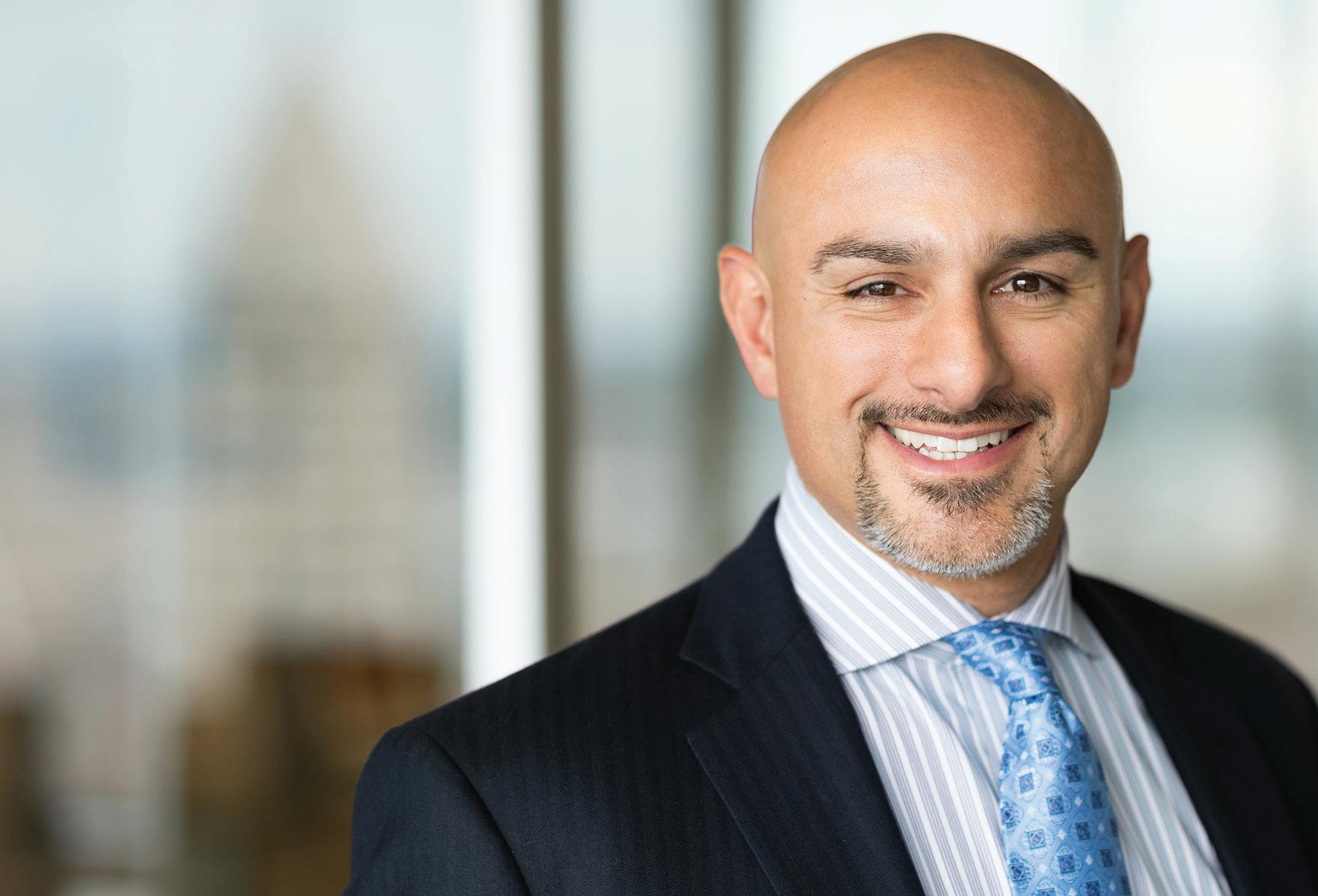
When Mauricio Uribe graduated from KU Law, Pearl Jam dominated the music charts, Furbies were flying off shelves and DVDs were a fresh innovation. That was 1998. Today, Uribe is a partner at Knobbe Martens in Seattle, helping clients navigate cutting-edge fields like artificial intelligence (AI), blockchain and other emerging technologies.
Uribe graduated from the University of Missouri in 1995 with bachelor’s degrees in electrical and computer engineering. His decision to study law was inspired by an “aha moment” when his Beta Theta Pi
fraternity brothers introduced him to the field of intellectual property law. Uribe said he always had an interest in law, but didn’t know there was a way to mesh his technical background and legal interests together.
With a vision of practicing in Kansas City, Uribe set his sights on KU Law. Once there, he explored a variety of interests. While intellectual property stood out, he also delved into tax law and participated in the Defender Project, now called the Paul E. Wilson Project for Innocence & Post-Conviction Remedies.
After graduating, Uribe worked in Kansas City for two years before
recognizing a shift in intellectual property trends on the East and West Coasts. He and his wife decided to relocate, and that decision proved transformative.
Now, Uribe is a partner and leads the Software/IT and Electrical and Data Privacy practice groups at Knobbe Martens in Seattle, Washington. Initially envisioning a career in litigation focusing on hardware and consumer products, he instead found himself specializing in software and emerging technologies, without ever stepping foot into a courtroom. Uribe’s work spans licensing, portfolio strategy and helping clients navigate the complexities of modern IP law.
Reflecting on the field’s evolution and his career, Uribe emphasized the importance of continuous learning. Technologies such as blockchain, AI and even the internet were nonexistent or in their infancy when he began his career. Today, they present both exciting opportunities and unique challenges.
“I have a solid base in terms of technical knowledge, but it's your ability and passion for learning that really drives this practice,” he said. “There's always that challenge, to stay up to date with technologies, try to identify the trends, learn new technologies and understand how the legal practice, especially in intellectual property protection, applies to those new technologies.”
“I have a solid base in terms of technical knowledge, but it's your ability and passion for learning that really drives this practice."
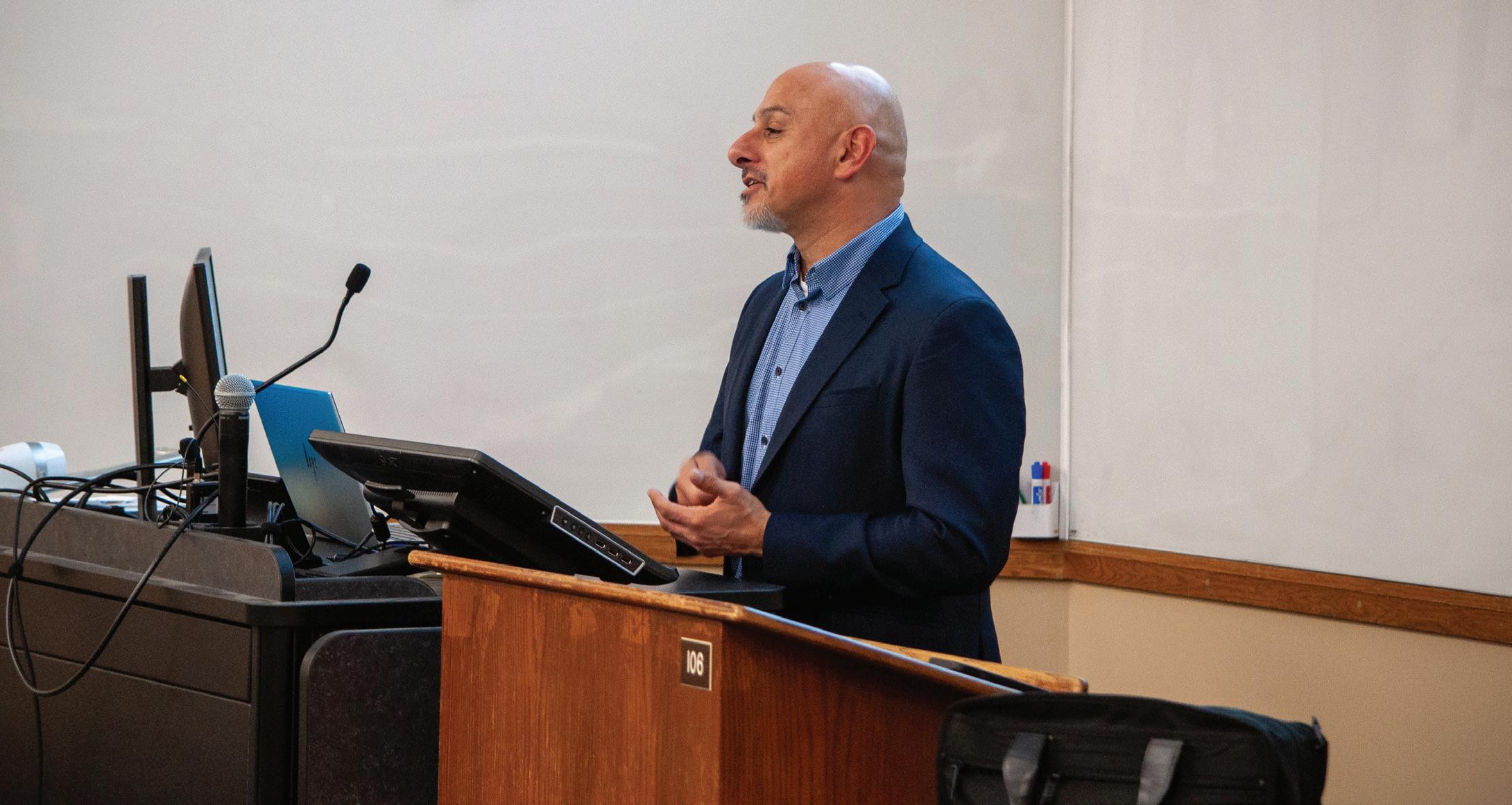
Emerging technologies have reshaped the landscape of intellectual property law, requiring attorneys to address unprecedented legal questions. The rise of generative AI, for instance, has brought copyright law to the forefront, raising issues about data usage and creative ownership. Uribe pointed out that traditional legal frameworks, some of which date back to the 18th century, often struggle to address the nuances of modern technological advancements.
“Some of the statutes that govern patent applications and technology were written at a time when a hay baler was cutting-edge technology,” he said.
Even with decades of experience, Uribe considers himself a perpetual student. Each day, he invests in learning about the latest legal and technological developments. He takes particular pride in building strong client relationships
and witnessing the tangible impact of his work. Whether it’s helping a small inventor protect their life’s work or devising a strategy that enables a company to secure funding, these experiences underscore the meaningful contributions lawyers can make.
“I love feeling like I'm in partnership with my clients. I work very hard for them; I’m very loyal to them, whether it's buying their product, using their product or knowing everything I can about their company and how they operate,” he said. “I put a lot of energy into the relationship, and they do the same, and that's mutually beneficial.”
Uribe also credits his success to collabation. At Knobbe Martens, he has access to colleagues with expertise across various legal and technical fields.
“Sometimes, there are areas of law or areas of tech that I clearly don't have
expertise in, and I can rely on my partners or other associates to help me,” he said.
Ultimately, Uribe’s career demonstrates the potential for lawyers to not only adapt to change but to shape it. By combining technical expertise, legal awareness and a commitment to mentorship, he exemplifies the evolving role of intellectual property lawyers in a rapidly changing world. —Casey Bacot

KU Law welcomed three full-time faculty members for the fall 2024 semester.
Robin Kundis Craig serves as the Robert A. Schroeder Distinguished Professor of Law. She currently teaches Civil Procedure and Water Law with future courses in Environmental Law, Toxic Torts and Ocean & Coastal Law. Craig comes to KU law from the University of Southern California Gould School of Law where she was the Robert C. Packard Trustee Chair in Law. Craig holds a J.D. from the Lewis & Clark School of Law, a doctorate in English Literature from UC Santa Barbara, a master's in Writing About Science
from John Hopkins University and a bachelor's in English from Pomona College.
Sharon Brett joined the KU Law faculty as an associate professor of law after previously serving as an adjunct professor. Brett teaches Civil Procedure, Evidence, Federal Courts and Social Justice Lawyering. Prior to joining the faculty at KU, Brett was the legal director at the ACLU of Kansas where she led complex civil rights litigation in Kansas state and federal courts. Brett received her J.D. from the University of Michigan Law School and her bachelor's in Psychology and Criminal Justice from the University of Michigan.
Jordan Carter originally joined KU Law as a visiting assistant professor from 2021-23 and also served as the director of diversity, equity, inclusion and belonging from 2021-22. She moved into her current role as a clinical associate professor this semester and teaches Lawyering Skills I, Lawyering Skills II and Professional Identity Formation. Prior to joining the KU Law faculty, Carter was a judicial law clerk for Hon. James O'Hara, chief magistrate judge of the United States District Court, District of Kansas. She earned her J.D. from KU and a bachelor's in Women and Gender Studies from Washington University in St. Louis.
The University of Kansas School of Law ranks No. 19 in the nation among public law schools and No. 43 overall for scholarly impact, according to a recent study.
The Sisk Scholarly Impact Rankings Study measures scholarly impact based on law journal citations to the work of tenured faculty members over the past five years. Only law schools placing in the top third for scholarly impact are included in the published rankings. The rankings are widely considered to be a leading measure of faculty productivity within legal academia.
The study, conducted by a team of academics, is updated every three years. KU Law was previously ranked No. 40 overall in 2021, No. 48 in 2018 and No. 64 in 2015.
KU Law again outranked several peer law schools, including Iowa, Indiana-Bloomington, Georgia and Southern Methodist. KU’s scholarly impact ranking exceeded the ranking of several law schools affiliated with fellow members of the Association of American Universities (AAU).
“A faculty that actively addresses important legal issues benefits the profession and brings national attention to the law
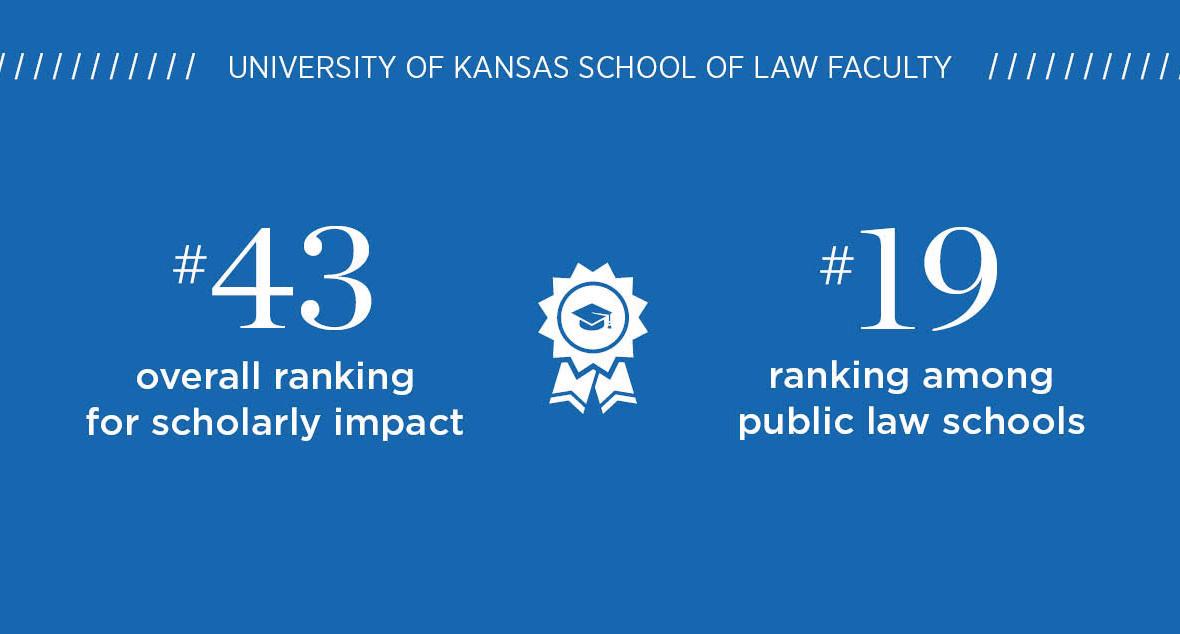
school,” said Stephen Mazza, dean and professor of law. “Students also benefit when they learn from faculty who are part of policy conversations that affect how the law develops.”
In addition to a school-byschool ranking, the study reports the mean, median and weighted score, along with a list of the tenured law faculty members at each school with the 10 highest individual citation counts. Based on the latest Sisk data, Robin Kundis Craig, the Robert A.
Schroeder Distinguished Professor of Law at KU, is the 17th most cited environmental law scholar.
"We are lucky at KU Law to have faculty who are productive in a variety of ways,” Mazza said. “They not only produce scholarship, but they lead clinics, create experiential courses and teach our students the fundamentals of legal research and writing.” —Julie Francisco




nternational trade law has transformed rapidly since 2019. Raj Bhala, Brenneisen Distinguished Professor at the KU School of Law, addresses those changes with a new edition of his textbook that for the first time is available free of charge in an open-access format.

Vaccine nationalism catalyzed by the COVID-19 pandemic gripped the globe, while new political regimes took power that challenged the dominant free trade consensus. Social justice movements pressed for enhanced human rights provisions in trade treaties, and the World Trade Organization dispute settlement system saw the demise of the Appellate Body. Those were among the shifts to inspire “International Trade Law: A Comprehensive E-Textbook,
The new edition was published open access via KU ScholarWorks, KU’s online institutional repository of scholarly work by KU faculty, staff and students managed by KU Libraries. It spans eight volumes over 188 chapters and more than 6,500 pages. The volumes can be used flexibly, such as in combination for basic and advanced trade courses, or as stand-alone books for specialty courses
"Raj Bhala is one of the world’s leading scholars on international trade and has devoted his career to creating this text. By removing the financial barrier that comes with traditional publishing, we have made this text as valuable as we possibly can,” said W. Blake Wilson, assistant director of Wheat Law Library at KU.
Bhala praised colleagues in KU Libraries and KU Law’s Wheat Law Library who encouraged the open format publication and addressed the challenges of making a document the size of “International Trade Law” openly available.
“I think KU’s leadership in open access is outstanding," Bhala said. "As far as I know, it’s one of the only law textbooks available open access, certainly in trade. This platform – KU ScholarWorks – helps ensure the international trade bar is open, inclusive and meritocratic." —Mike Krings
One of the biggest concerns regarding artificial intelligence is that people will use it as a writing tool, then pass off the results as their own work. But when a pair of legal scholars tried to list AI as a co-author on a law review article, journals didn’t like that either.
Andrew Torrance, the Paul E. Wilson Distinguished Professor of Law at KU, and Bill Tomlinson of the University of California-Irvine have been longtime collaborators. Their paper, “ChatGPT and Works Scholarly: Best Practices and Legal Pitfalls in Writing with AI,” written with Rebecca Black of the University of California-Irvine, was published in the SMU Law Review.
“We wrote a bunch of papers using AI and got them accepted. And along the way we learned a lot about what worked and what didn’t when using AI,” Torrance said. “It’s enhanced productivity a lot. Before, one paper a year or so would be good. Now you can do so much more. We edit ourselves to make sure those pitfalls don’t happen. In some cases, we consider AI to be a co-author. That’s one of the things we learned right away, is be explicit. We celebrate that we use it.”
Their paper provides guidelines for those curious about using either of the leading AI engines in their academic writing. They largely apply to any kind of writing, but the authors found while AI can be a useful tool, a human touch is still necessary to avoid faulty work.
The researchers provide step-bystep guidelines on usage as well as information about the ethics of AI in writing and its place in legal scholarship. —Mike Krings
Andrew Torrance gave his inaugural lecture as the Paul E. Wilson Distinguished Professor of Law.

John Head launched the Global Restoration Project – an informal multidisciplinary think tank involving legal and policy experts eager to exchange ideas revolving around global ecological restoration.
As the world scales back dependence on fossil fuels, the concept of “energy communities” is linked — in the U.S. at least — to those that have a legacy of fossil fuels or economic dependence on them and need support in making the transition. Uma Outka, the William R. Scott Law Professor at the KU School of Law, argues that wider variation in how “energy communities” are conceived can be a strong point in allowing innovation in the clean energy transition.
She recently collaborated on a comparative project to document how energy communities have emerged in the European Union and the United States. That became a chapter in the comparative law volume, “Handbook of Energy Law in the Low-Carbon Transition."
”There is not only one way to think about energy communities,” she said, “and our chapter showed that the concept has evolved very differently in the EU and the U.S.”
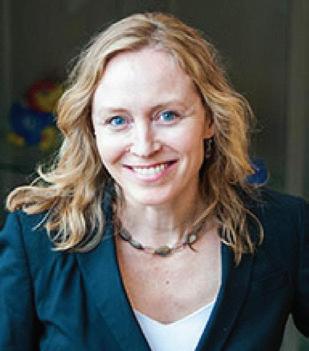
Raj Bhala received the KU Libraries' 2024 Shulenburger Award for Innovation & Advocacy in Scholarly Communication for his work creating opensource law textbooks.
In an article published in the University of Miami Law Review, she explores how the definition of energy communities not only differs around the globe but how it has continued to evolve. It examines legal and policy approaches and transitions under the Biden administration. The article provides examples of several different types of such communities in the United States, as well as locations like India, Brazil and South Africa. She noted the differences could be a way to guide the legal frameworks in energy law and that narrow restrictions are likely to stifle innovation in helping communities transition from previous energy systems.
The varying examples of how differing nations and governing bodies are conceiving energy communities illustrate how they may continue to form organically, with or without legal definitions, Outka writes.
A third work now headed to press is part of an international volume focused specifically on how energy communities will address implementation of the concept in the U.S. The three pieces build on Outka’s larger energy and environmental law research on energy justice, energy transitions at the community scale and her role as a member of the Energy Law Editorial Board for Law360, a widely read legal news periodical. —Mike Krings

Sharon Brett The Wichita Eagle
“When we’re talking about something like autonomy and dignity and privacy those are pretty expansive rights and government intrusion on those rights should have a high level of scrutiny to ensure there is not a deep government invasion into the personal decisions that we have.” On Kansas abortion protections
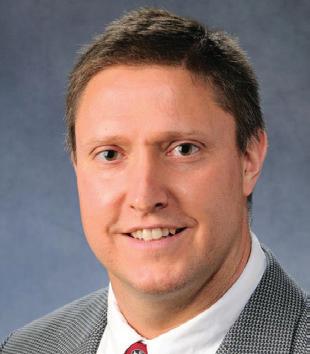
Andrew Torrance Electronics360
“This is not a curse, it’s a boon. I think this will help make good writers great, mediocre writers good and democratize writing. It can make people more productive and can be an empowerment of human potential. I’m hugely optimistic that technology is getting better in most respects and lightening the effects we have on the Earth." On the benefits of AI
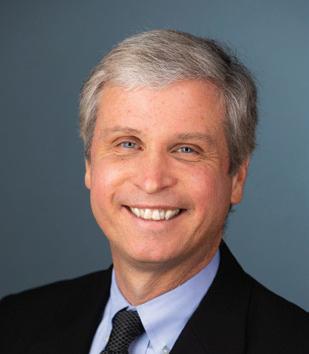
Stephen Ware ABA Journal
“Many states have laws or caselaw making infinite arbitration clauses unlawful, even if they’re part of a contract; however, this is not the case nationwide. Courts are split on whether these clauses are enforceable, and each case has to be evaluated under the state contract law applicable to the particular dispute.” On Disney’s forced arbitration case

Bhala Hutch Post
"The president could just simply impose, as President Trump has talked about doing, a tariff of 10% across the board, or 60% on all Chinese goods, or 200% on John Deere equipment made in Mexico. The problem with that, it is probably going to be illegal under both U.S. law and our treaty obligations under the World Trade Organization agreement and under the U.S.-Mexico-Canada agreement or USMCA." On Presidential trade policy
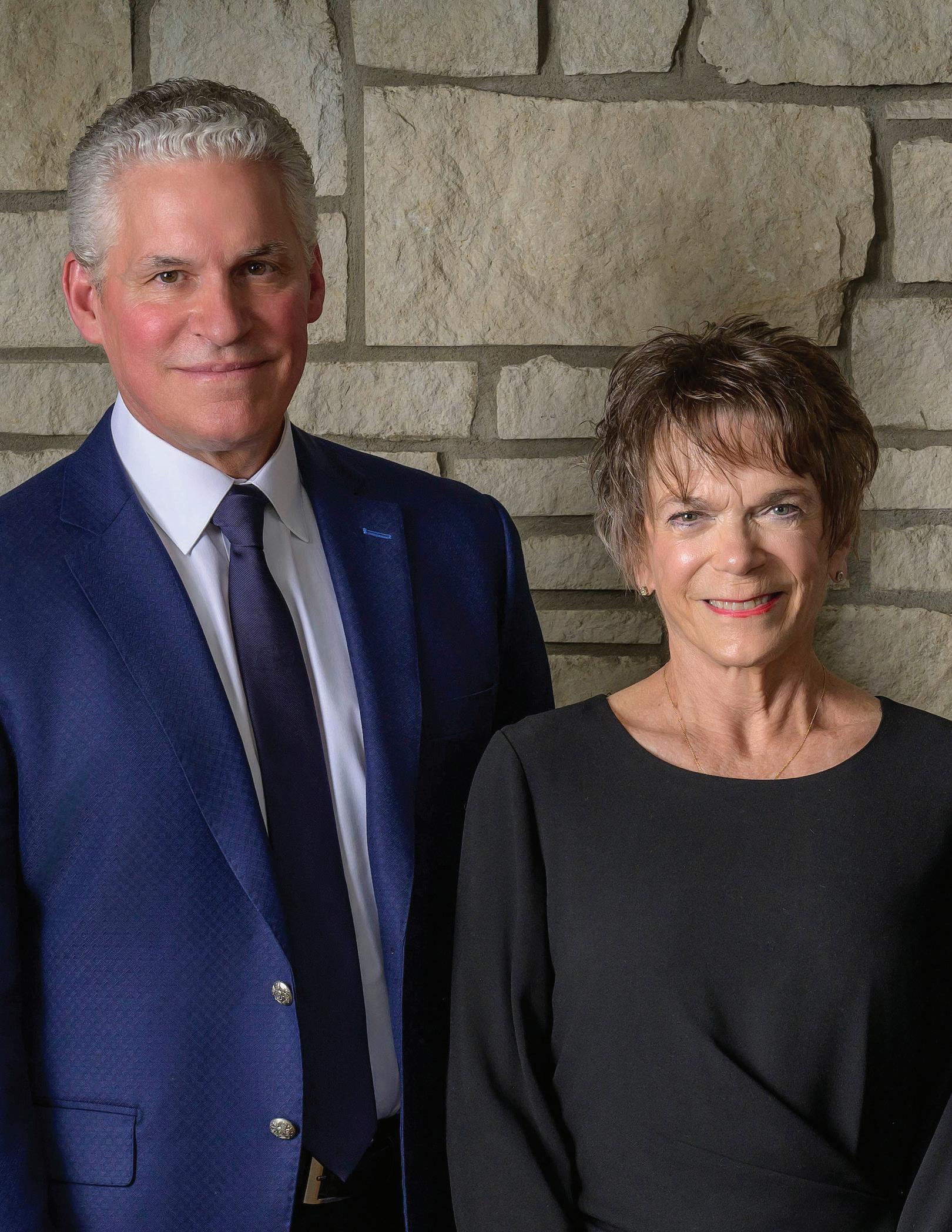

Yde was the head of the U.S. antitrust practice of Freshfields Bruckhaus Deringer from 2002 until his retirement in 2021. He defended hundreds of large mergers and acquisitions before the Federal Trade Commission (FTC), the U.S. Department of Justice (DOJ) and various state attorneys general, including many of the largest and most complex transactions worldwide. Yde also defended dozens of clients in some of the most significant civil and criminal antitrust investigations at the FTC and DOJ. He has written numerous articles on antitrust law and economics in scholarly and trade publications and served as an editor of the Antitrust Law Journal and the ABA’s Antitrust magazine. He earned his master's and law degrees from KU.

Sheldon was a professor at KU in the Department of Applied Behavioral Science from 1977 until her retirement in 2020. She also served as a courtesy professor in the School of Law from 1981 until her retirement. She is currently a professor emerita. She was inducted into the KU Women’s Hall of Fame and the Women in Behavior Analysis Hall of Fame and has received numerous awards for her teaching, advising and service. Sheldon co-directed the Douglas County Truancy Prevention and Diversion Program for more than 40 years and was director of the Edna A. Hill Child Development Center at KU for more than 20 years. She earned her bachelor's degree from KU in 1971, her Ph.D. in 1974 and her law degree in 1977.
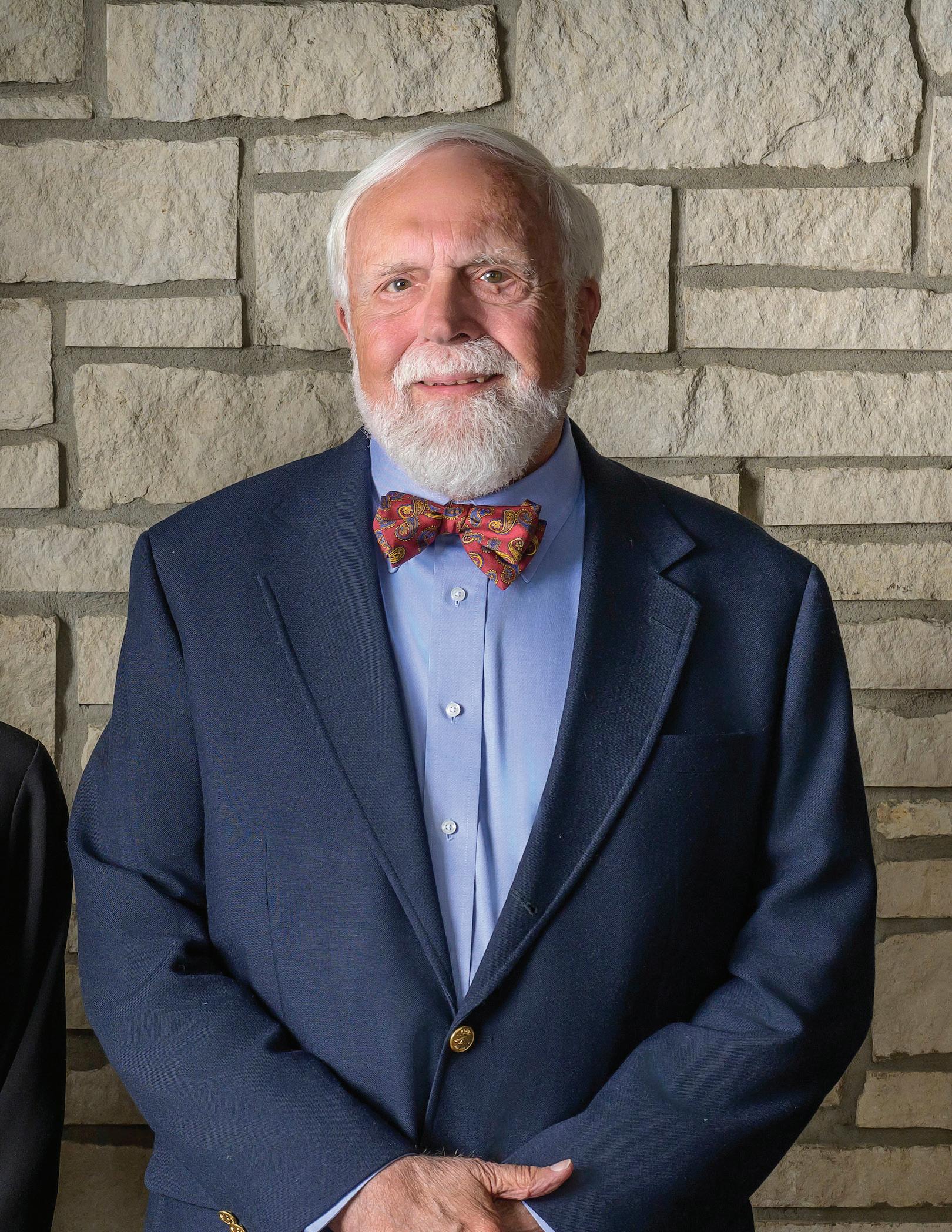

Belot was nominated to the District of Kansas by President George H.W. Bush in 1991. As a U.S. district judge, he presided over many high-profile cases such as the first U.S. trial related to the Rwandan genocide. In 2008, upon reaching age and service requirements, Belot took senior status but remained steadfastly dedicated to the bench and heard cases until 2015. Prior to joining the bench, he served as a JAG Corps officer in the U.S. Naval Reserve, clerked for U.S. District Judge Wesley Brown and became an assistant U.S. attorney followed by several years in private practice. Belot earned a bachelor's degree in 1965 and a law degree in 1968, both from KU.
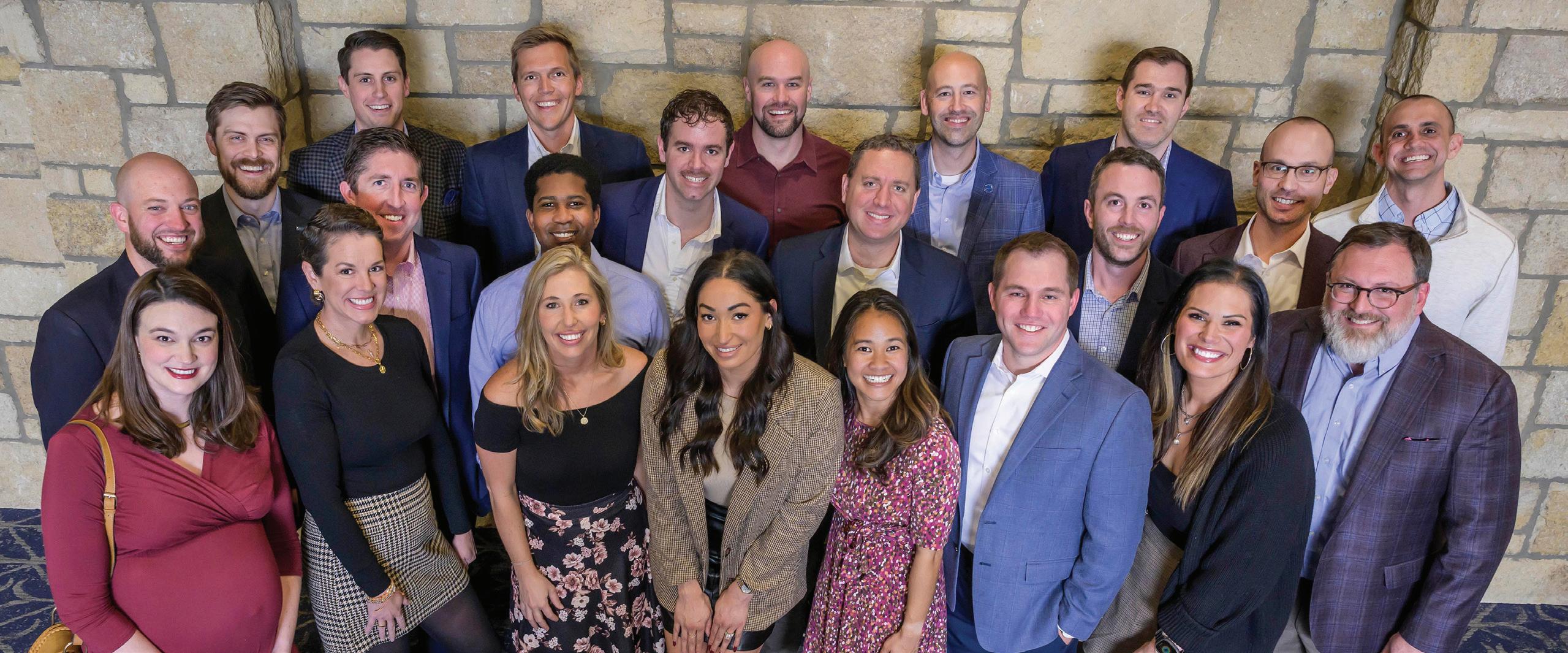
Graduates in the KU Law classes of 1979, 1984, 1994, 1999, 2004 and 2014 reunited during Homecoming Weekend, Oct. 18-19. Alumni gathered for a reception and dinner at The Oread, then cheered on the Jayhawks at a watch party for the Homecoming football game.
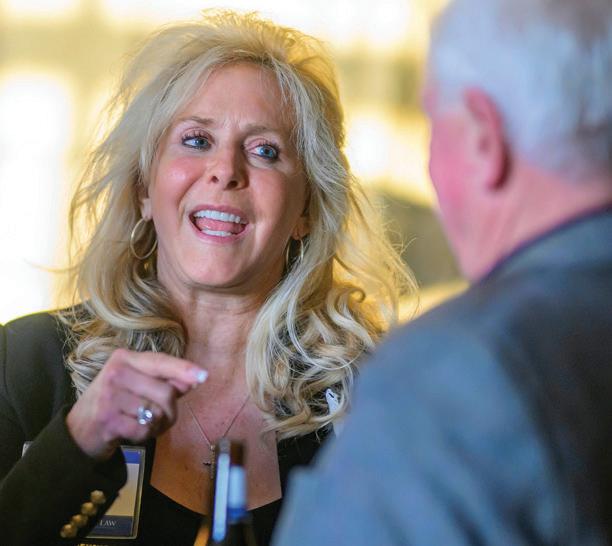
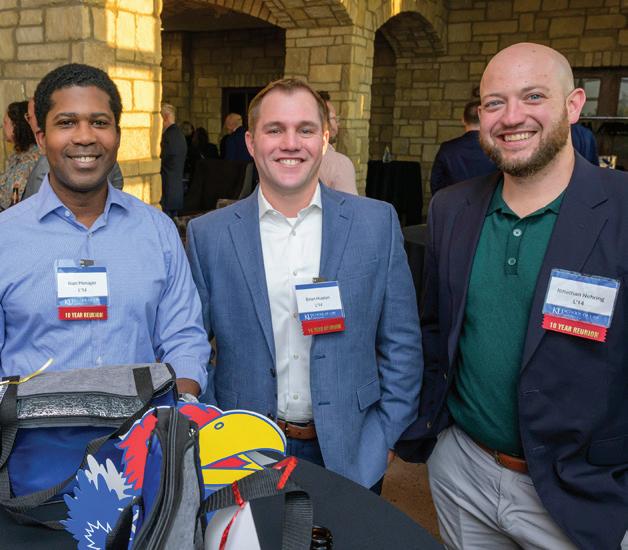
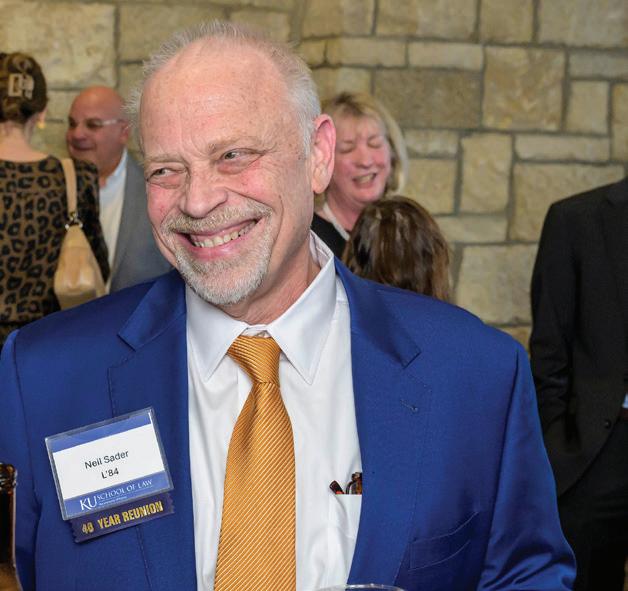
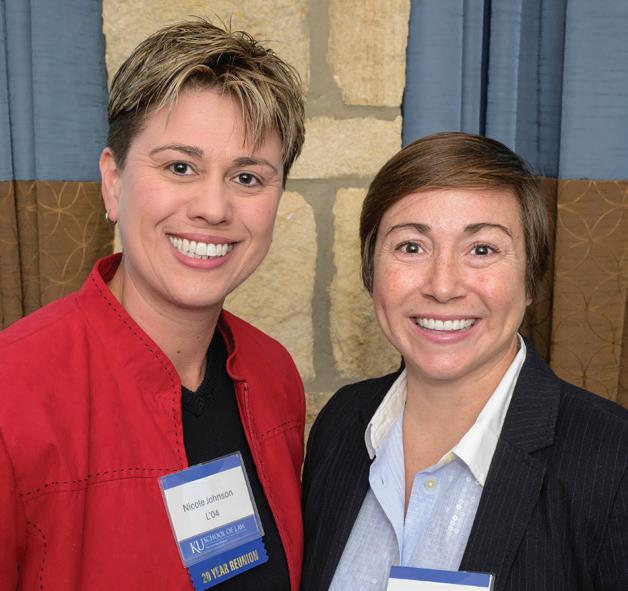


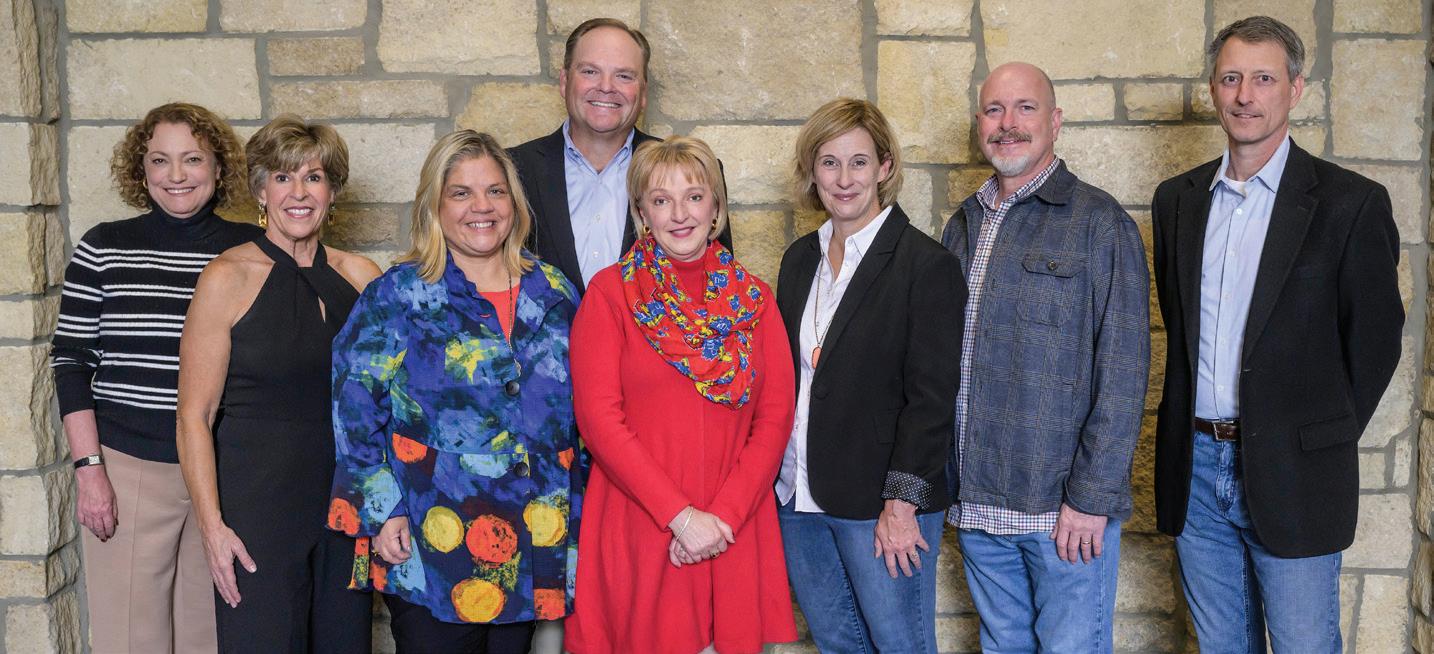
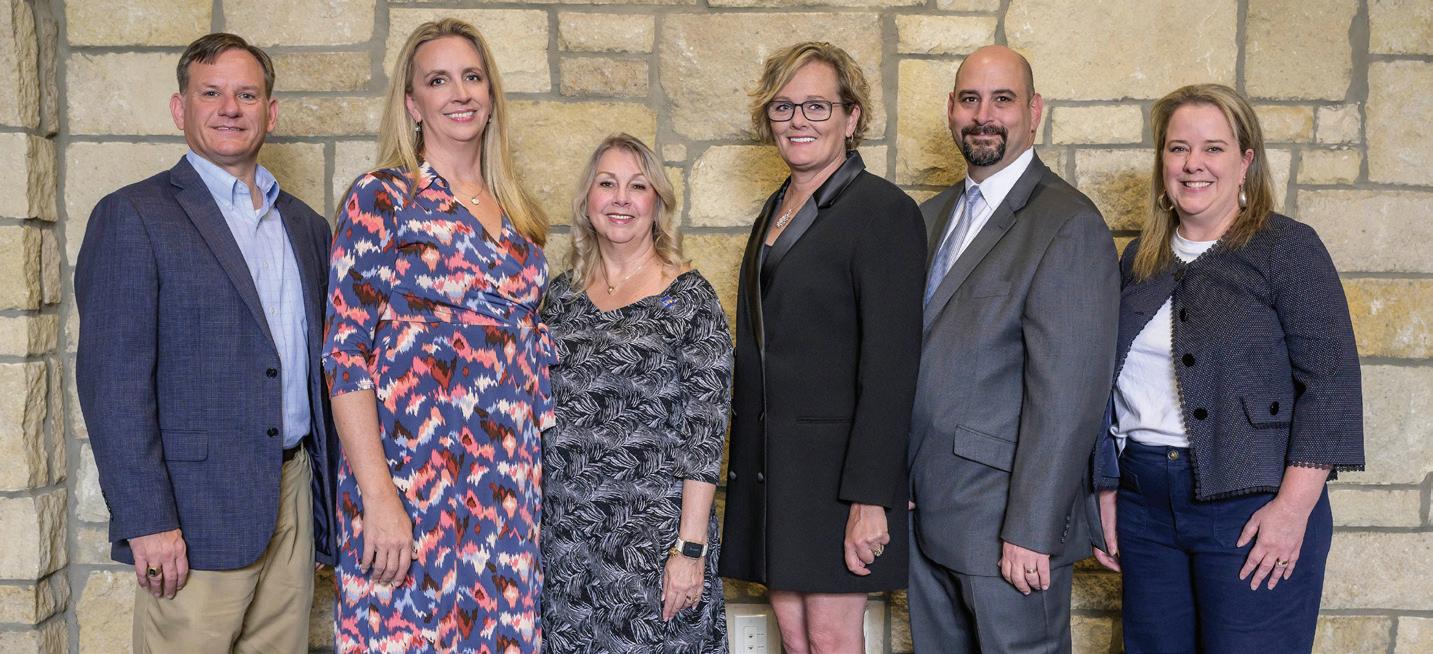
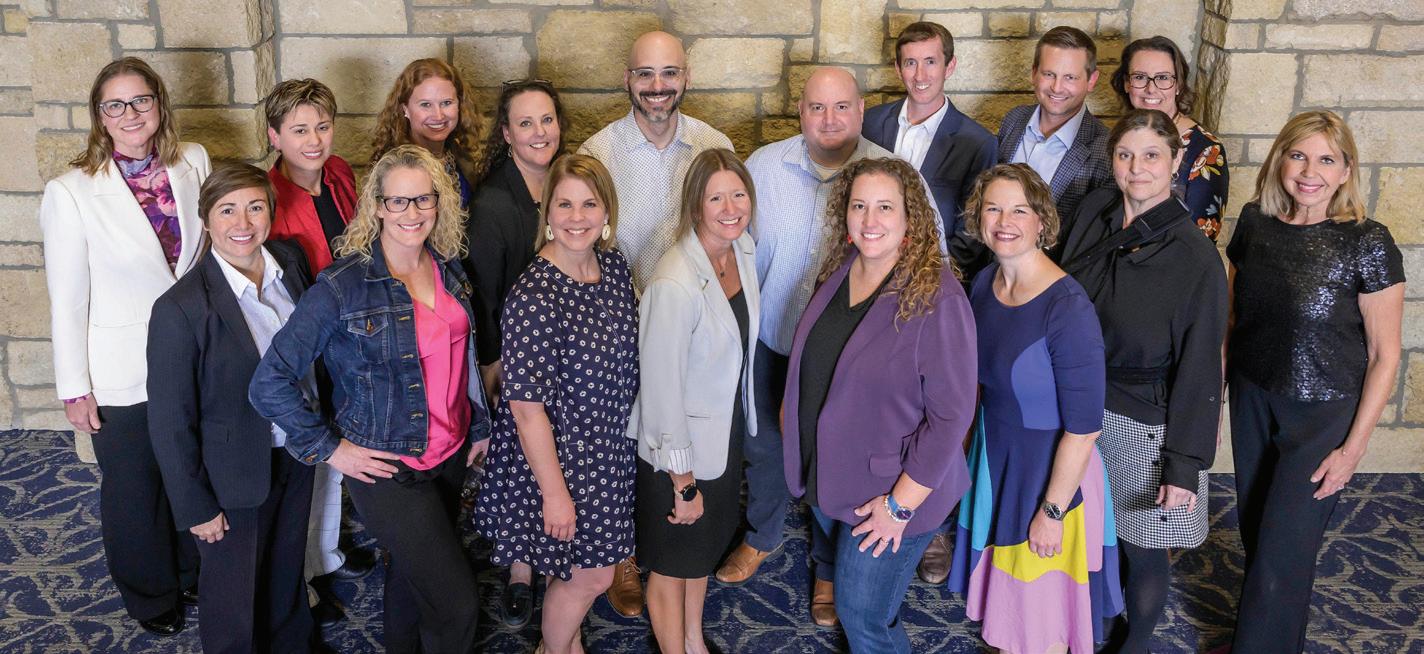
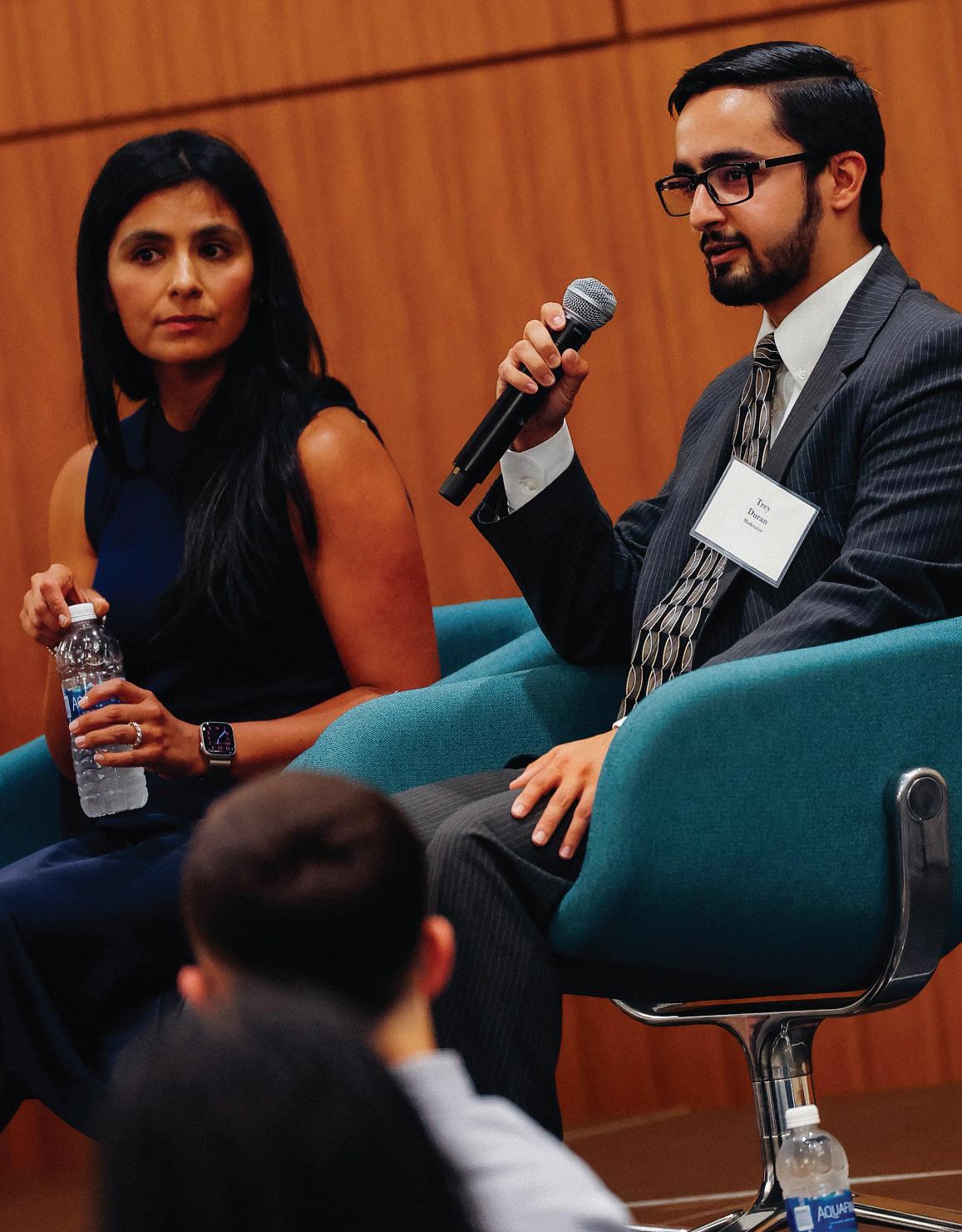

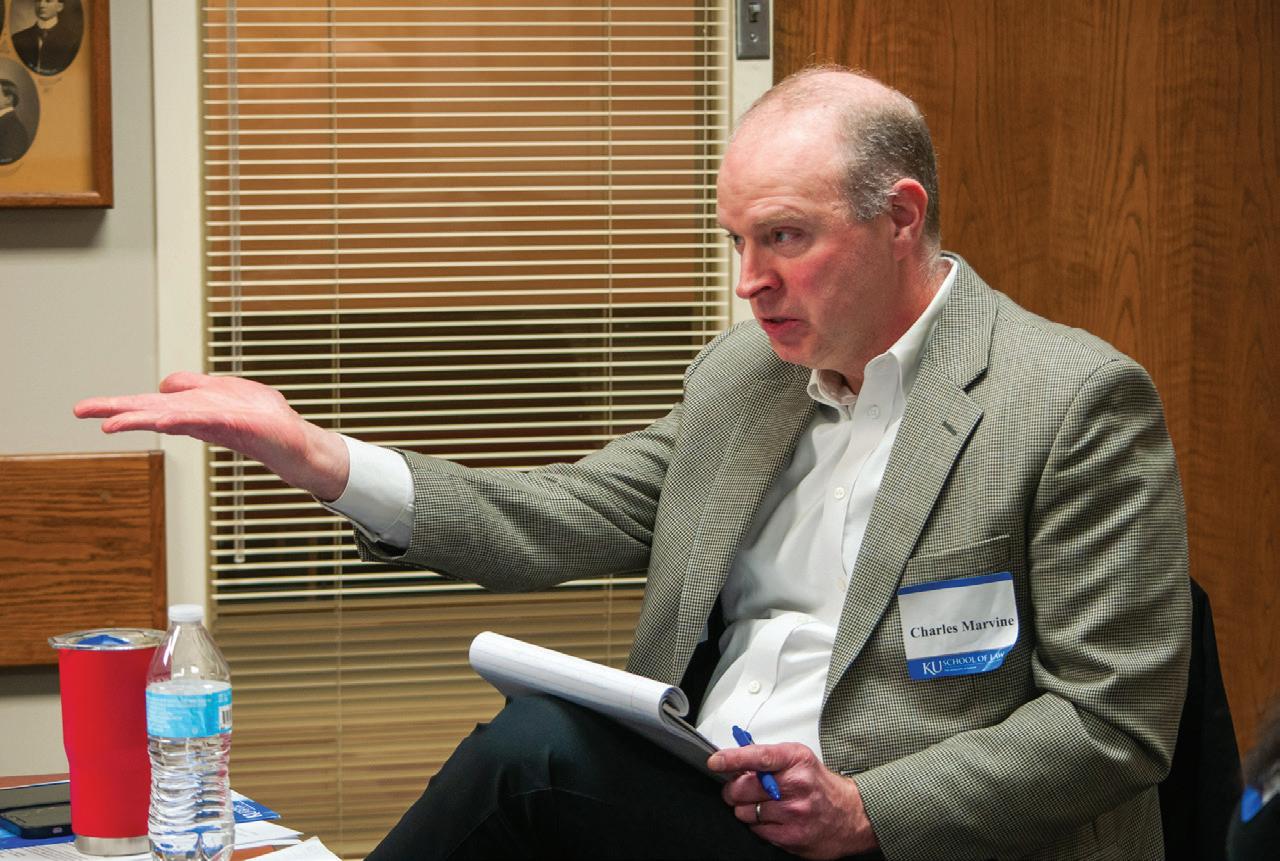
2023-2024
The Volunteer Honor Roll recognizes the many KU Law graduates who donate time, energy and expertise to enhancing the law school student experience. They mentor and stage mock interviews with students, guest lecture in law classes and at student organization events, judge moot court rounds, host alumni receptions and serve on boards. We value your contributions volunteering for the benefit of future generations of KU lawyers. Get involved at law.ku.edu/volunteer
WE VALUE YOUR CONTRIBUTIONS!
Names that follow represent volunteer efforts from June 2023 to May 2024. If you are aware of omissions or errors, please contact Julie Francisco at juliefrancisco@ku.edu
Mayra Aguirre, L’07
Quintin Aker, L’20
Chris Allman, L’89
Karen Baddeley, L’17
Jacob Barefield, L’23
Cassidy Bee, L’23
Brynn Blair, L’18
CJ Boyd, L’17
Cathie Chiccine, L’10
Kevin Connor, L’85
Hon. Toby Crouse, L’00
Mack Curry, L’21
Josh DeMoss, L’17
Trey Duran, L’22
Ann Elliott, L’12
Hon. Rich Federico, L’02
Laura Clark Fey, L’92
Luis Fernando Gomar, L’05
Hon. Layatalati Hill, L’12
Angie Huffhine, L’21
Hon. Jacy Hurst, L’07
Hon. Teresa James, L’84
Jared Jevons, L’21
Anna Kimbrell, L’14
Hon. Paul Klepper, L’09
Charlotte Kukundakwe, LLM’23
Kirstyn Malloy, L’21
Steve McAllister, L’88
Ben McFarlane, L'15
Max McGraw, L’17
Jake McMillian, L’15
Matt Moriarty, L’15
Erin Nisly, L’22
Hon. Cynthia Norton, L’84
Demetrius Peterson, L’09
Jean Phillips, L’90
Alex Reed, L’22
David Reintjes, L’97
Hon. Julie Robinson, L’81
Suzanne Hale Robinson, L’15
Jaden Scott, L’20
Danielle Sediqzad, L’16
Sangeeta Shastry, L’18
David Staker, L’95
Hon. Andrew Stein, L’13
Hon. Catherine Theisen, L’97
Mary Kate Throckmorton, L’21
John Truong, L’18
Jabari Wamble, L’06
Eric Witmer, L’17
Sara Zafar, L’08
Daniel Buller, L’11
Christopher Coons, L’99
Hon. Toby Crouse, L’00
Kristina Crump, L’10
Emily Depew, L’23
Maria Drouhard, L’19
Dan Dunbar, L’93
Hon. Rich Federico, L’02
Ryan Graham, L’20
Zach Kelsay, L’21
Anna Kimbrell, L’14
Dan Kopp, L’19
Braden Lefler, L’20
Andi Leuszler, L’20
Hannah Lustman-Rodriguez, L’20
Konnor Manley, L’22
Erik Mikkelson, L’94
Ally Monson, L’23
Colin Murphy, L’23
Nancy Musick, L’19
Hon. Cynthia Norton, L’84
Rachel O’Donnell, L’22
Sara Otto, L’18
Mathew Peterson, L’18
Alex Reed, L’22
Dennis Schapker, L’79
Grace Seger, L’22
Rachael Simon, L’21
Diana Stanley, L’20
Sarah Sypher, L’04
Hon. Brett Watson, L’05
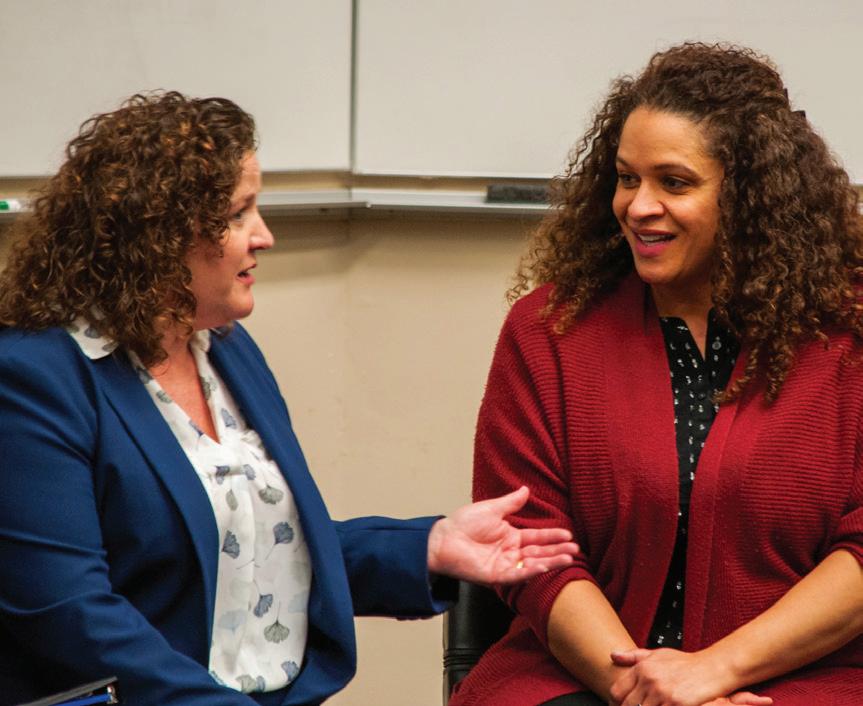
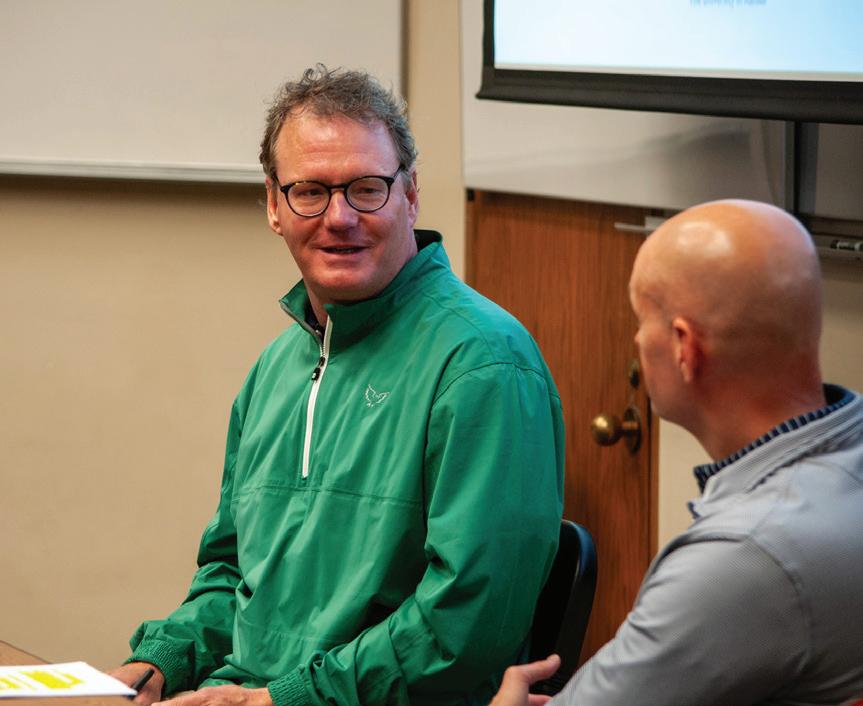
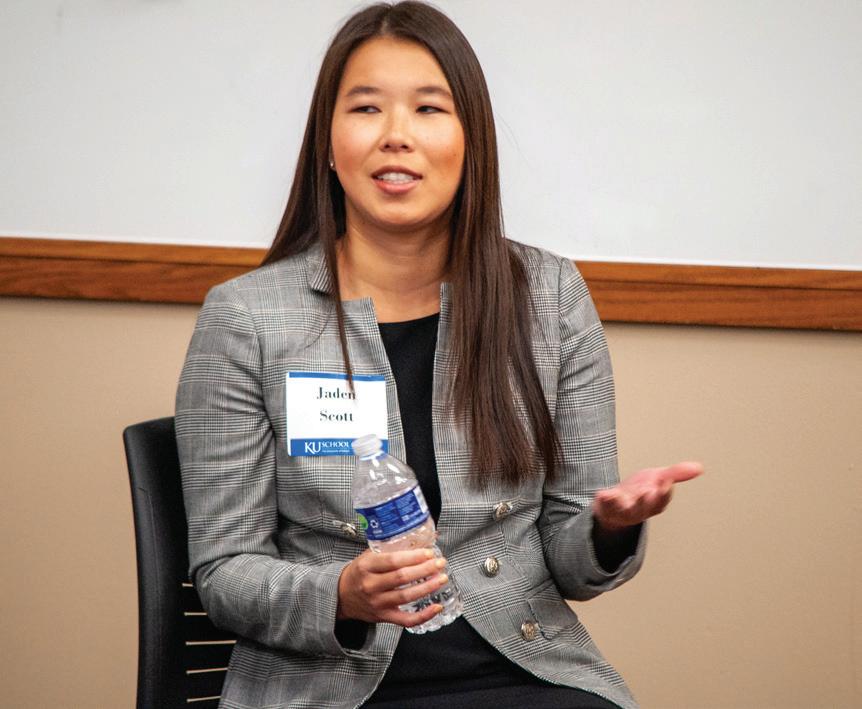
From top: Hon. Catherine Theisen, L'97, and Hon. Jacy Hurst, L'07, share their experiences in the field of law during Judges Day hosted by Women in Law; David Reintjes, L'97, participates in a panel presentation on private equity hosted by the Polsinelli Transactional Law Center; Jaden Scott, L'20, takes part in the Careeer Exploration Series hosted by the Career Services Office. Emma Herrman
Quentin Aker, L’20
Robert Anderson Jr., L’84
Andrew Arbuckle, L’23
Harrison Baker, L’21
Cassidy Bee, L’23
Jacob Barefield, L’23
Eric Barth, L’03
Hannah Bedford, L’20
Blair Bohm, L’20
CJ Boyd, L’17
Jenny Buck, L’18
Amber Cabrera, L’15
Ryan Carpenter, L’20
Nathaniell Castillo, L’20
Alice Craig, L’95
Mack Curry, L’21
Skyler Davenport, L’17
Amy Decker, L’98
Michelle Dixon, L’07
Betsy Donahue, L’22
Max Ellenbecker, L’14
Alex English, L’08
Alec Feather, L’22
Sara Fevurly, L’16
Laura Clark Fey, L’92
Brad Finkeldei, L’99
Colin Finnegan, L’20
Alan Fogleman, L’11
Bob Gallimore, L’05
Rebekah Gaston, L’05
Greg Gietzen, L’20
Katie Gilman, L’18
Kat Girod, L’23
Jessica Glendening, L’04
Jordan Haas, L’18
Suzanne Hale Robinson, L’15
David Halliwell, L’22
Travis Hanson, L’17
John Hicks, L’02
D.C. Hiegert, L’21
Taylor Hines, L’18
Martha Hodgesmith, L’78
Mark Holley, L’95
Saber Hossinei, L’21
Casey Johnson, L’13
Chris Kaufman, L’10
Ryan Kielczewski, L’24
Kyle Klucas, L’19
Dan Kopp, L’19
Mary Kuckelman, L’14
Anna Landis, L’10
William Larchar, L’19
Shauna Leslie, L’19
Maddie Level, L’20
Erin Levy, L’23
Margaret Lyons, L’14
Jennifer Magana, L’93
Garrison Matthews, L’21
Shane McCall, L’10
Joe McGreevy, L’12
Nolan McWilliams, L’08
Braydn Monhollon, L’23
Ally Monson, L’23
Nancy Musick, L’19
Brandy Nichols-Brajkovic, L’00
Emily Pennington, L’22
Spencer Phillips, L’20
Melody Rayl, L’08
Robert Reynolds, L’17
Blake Ronnebaum, L’20
Logan Rutherford, L’12
Grace Seger, L’22
Ashley Shaneyfelt, L’06
Ron Shaver, L’05
Nick Slovikoski, L’20
Holly Smith, L’17
Hon. Dale Somers, L’71
Amanda Stanley, L’14
Diana Stanley, L’20
Katie Studt, L’07
Patrick Sullivan, L’17
Maddy Tannahill, L’23
Mary Kate Throckmorton, L’21
Stephen Tujague, L’23
Brittany Ussery, L’23
Jabari Wamble, L’06
Abby Warnke, L’20
Michal Whitney, L’23
Britton Wilson, L’08
Marcia Wood, L’92
David Wooding, L’80
Samantha Woods, L’13
Amy Wuthrich, L’23
Daniel Yoza, L’08
Chris Allman, L’89
Frank Altomare, L’18
Carrie Bader, L’09
Harrison Baker, L’21
Kyle Binns, L’07
SueZanne Bishop, L’16
Jason Bock, L’10
Ryan Brungardt, L’17
Brendan Burke, L’07
Tyler Childress, L’17
Chris Colyer, L’09
Michael Crabb, L’09
Danielle Davey, L’09
Reid Day, L’16
Dustin Dvorak, L’20
Max Ellenbecker, L’14
Alex English, L’08
Sara Fevurly, L’16
Brad Finkeldei, L’99
Michael Fischer, L’07
Alan Fogleman, L’11
Samantha Foster, L’19
Kat Girod, L’23
Wendy Green, L’99
W. Rick Griffin, L’04
Jen Hackman, L’15
Kurt Harper, L’79
Thomas Hiatt, L’15
Saber Hossinei, L’21
Milos Jekic, L’11
Simrat Johal, L’22
Casey Johnson, L’13
Chris Kaufman, L’10
Claire Kebodeaux, L’18
Kristy Lambert, L’91
Will Larchar, L’19
Ashlyn Lewis, L’09
Margaret Lyons, L’ 14
Andrew Marino, L’04
Robert Martin, L’94
Carly Masenthin, L’18
Emily Matta, L’20
Max McGraw, L’17
Shirla McQueen, L’87
Andy Nolan, L’98
Pat O’Bryan, L’06
Ryan Peck, L’03
Rick Putnam, L’80
Blake Ronnebaum, L’20
Ron Shaver, L’05
Josh Sipp, L’23
Diana Stanley, L’20
John Taylor, L’24
Jabari Wamble, L’06
Abby Warnke, L’20
Peyton Weatherbie, L’23
Samantha Woods, L’13
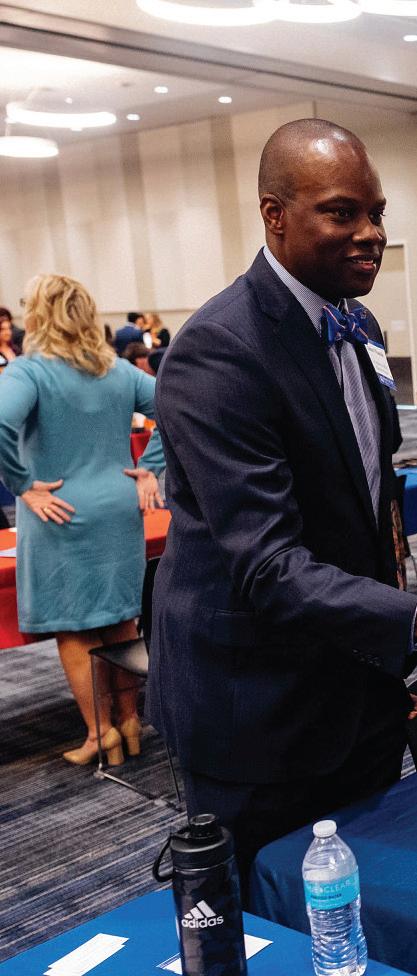

Quentin Aker, L’20
Eric Barth, L’03
Jenny Buck, L’18
Amber Cabrera, L’15
Nathaniel Castillo, L’20
Alice Craig, L’95
Amy Decker, L’98
Betsy Donahue, L’22
Anne Emert, L’05
Laura Clark Fey, L’92
Colin Finnegan, L’20
Taylor Hines, L’18
Martha Hodgesmith, L’78
Chris Kaufman, L’10
Kyle Klucas, L’19
Dan Kopp, L’19
Maddie Level, L’20
Joseph McGreevy, L’12
Nolan McWilliams, L’08
Spencer Phillips, L’20
Robert Reynolds, L’17
Suzanne Hale Robinson, L’15
Blake Ronnebaum, L’20
Diana Stanley, L’20
Katie Studt, L’07
Patrick Sullivan, L’17
Abigail Warnke, L’20
Daniel Yoza, L’08
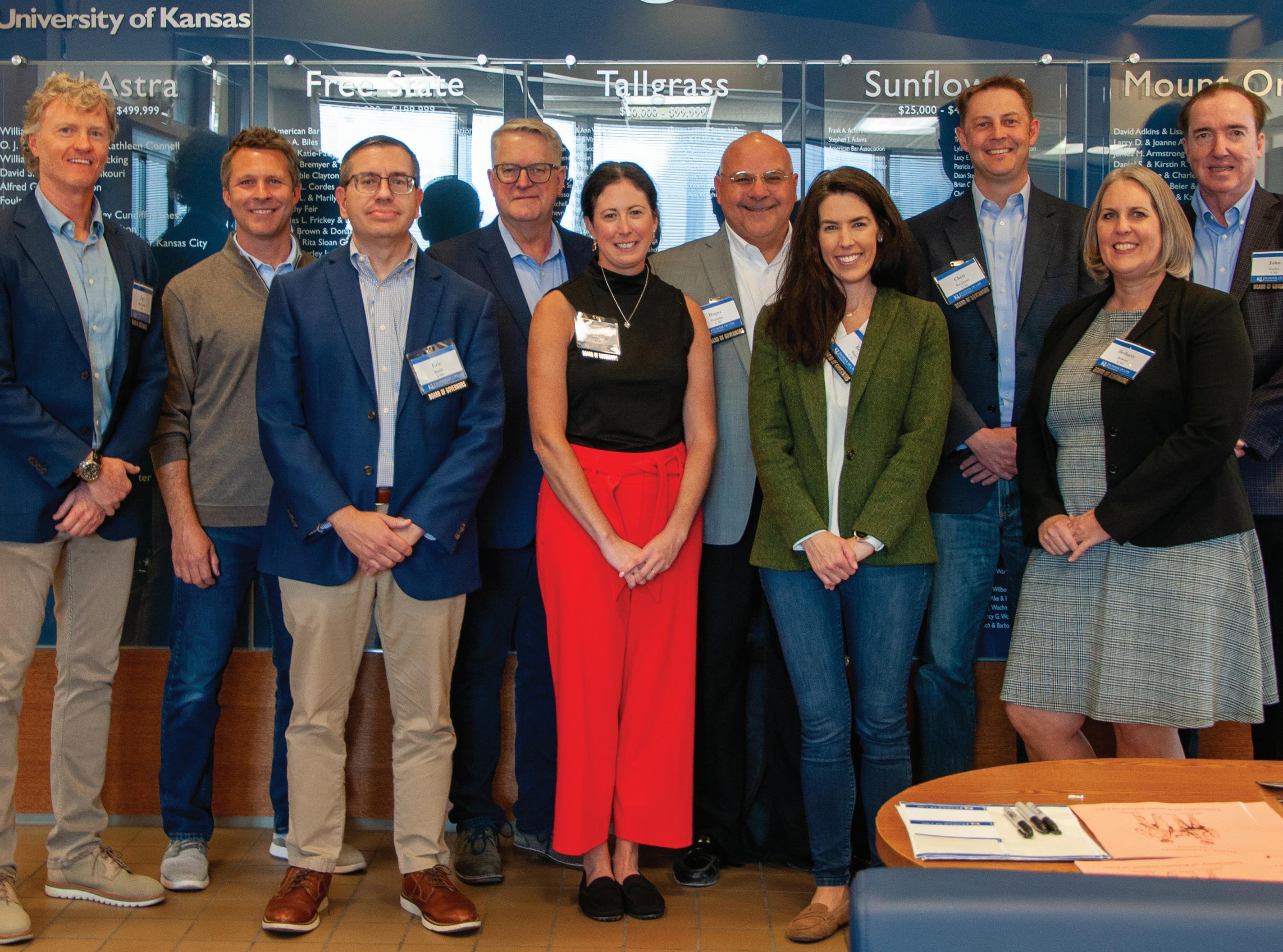
PRO BONO PROGRAM SUPPORT & SERVICE
Dwight Alexander, L’11
Jessica Leavitt, L’14
STUDENT RECRUITMENT & SCHOOL MARKETING
Madeline Calcagno, L’23
Matt Cohen, L’18
Marisol Garcia, L’21
Colin Murphy, L’23
Heddy Pierce-Armstrong, L’22
Emory Saucedo, L’19
Dana Tafreshi, L’12
NEW MEMBERS KU LAW BOARD OF GOVERNORS
Eric Barth, L’03
Betsy Blake, L’05
John Gurley, L’83
Ryan Huschka, L’07
Chris Kaufman, L’10
Jay McGrath, L’96
Pablo Mose, L’15
Kathryn O’Hara Gasper, L’08
Bethany Roberts, L’03
Ronald Sullivan, L’96
Roger Templin, L’92
Mark White, L’85
Slade Bond, L’11
Jeff Morrison, L’95
Whitney Novak, L’14
Krisann Pearce, L’95
Dana Watts, L’10
OTHER VOLUNTEER SERVICE
Katie Harpstrite, L’07
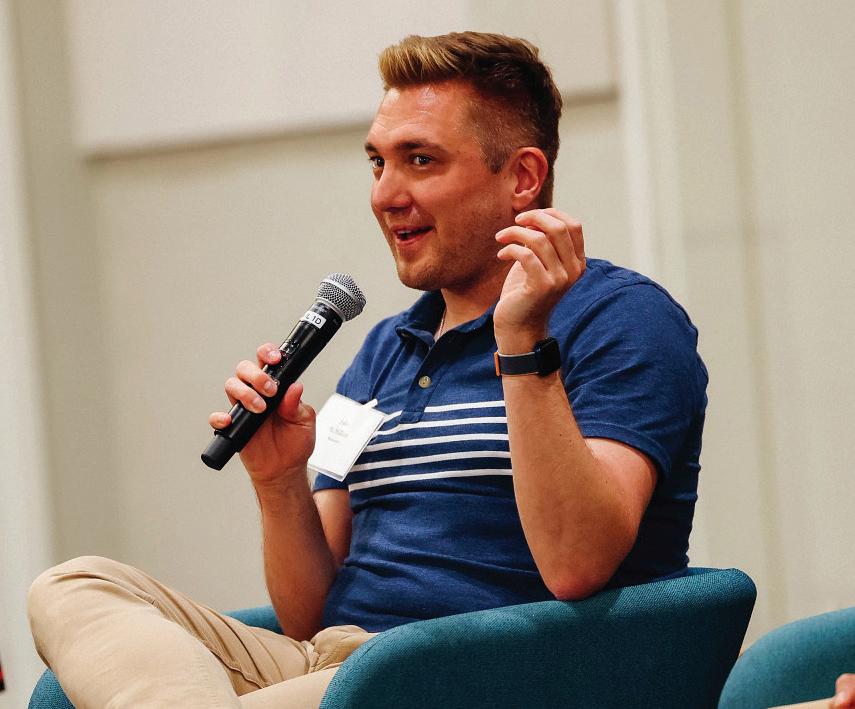
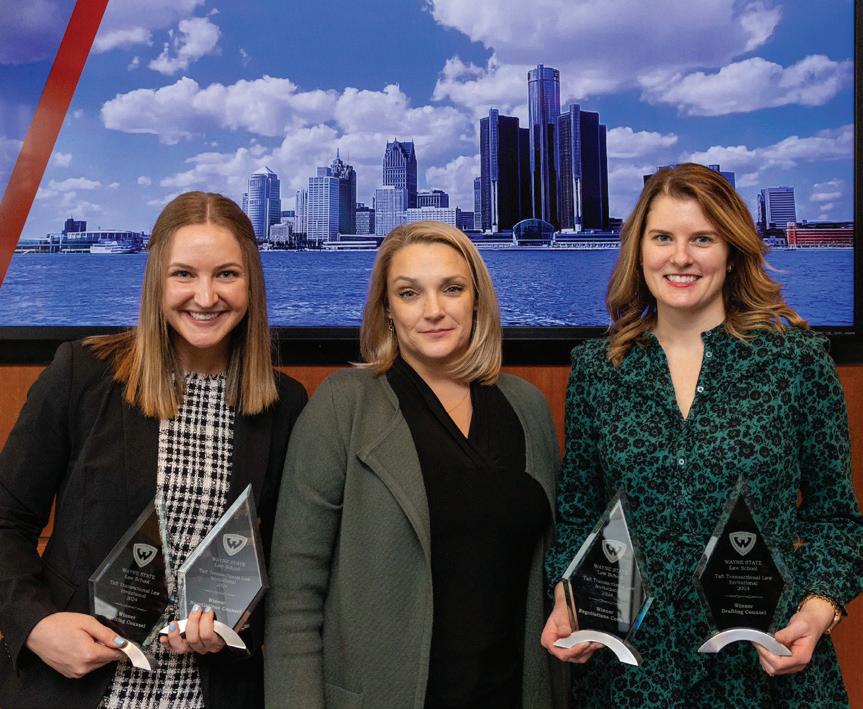
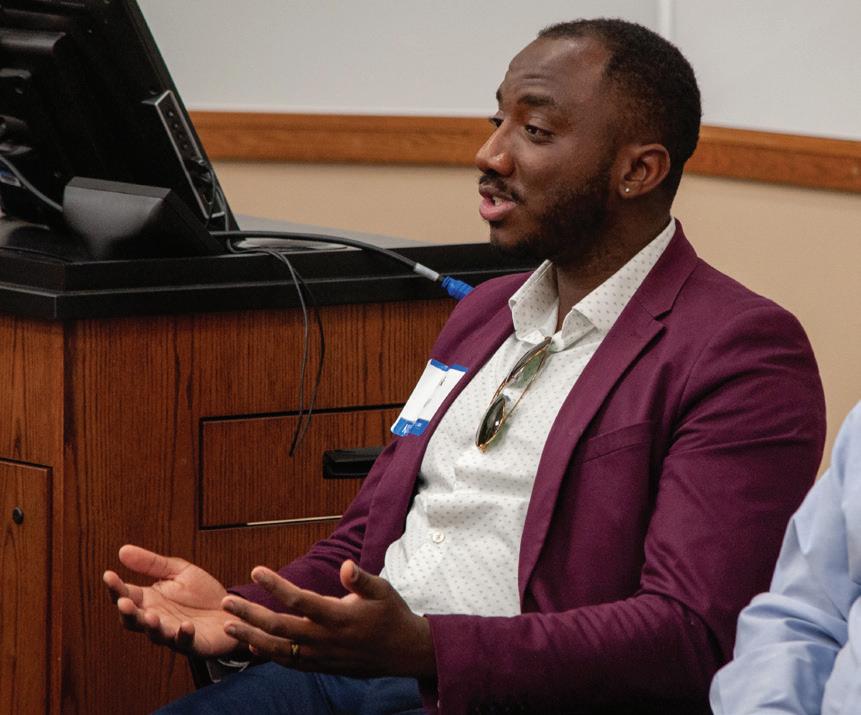
From top: Jake McMillian, L'15, speaks during a panel presentation at 2L/3L Orientation; Coach Anna Kimbrell, L'14 (center) celebrates with Alli Baden (left) and Jackie Jeschke who won first place in both award categories for buyer’s counsel (best contract drafters and best negotiators) at the Wayne State Taft Transactional Law Competition; Mack Curry, L'21, participates in the Careeer Exploration Series hosted by the Career Services Office.
KU Marketing (top), Submitted by Jackie Jeschke (center) and Emma Herrman (bottom)
Katie Barnett, L’11
Hon. Jason Billam, L’00
Brynn Blair, L’18
Hon. Toby Crouse, L’00
Alexandra English, L’08
Hon. Carl Folsom III, L’05
Hon. Stephanie Goodenow, L’00
Saber Hossinei, L’21
Hon. Teresa James, L’84
Hon. Roseann Ketchmark, L’90
Kristy Lambert, L’91
Hon. Joan Lowdon, L’10
Ben Miller-Coleman, L’10
Hon. Angel Mitchell, L’00
Aubrey Sample, L’14
Hon. Holly Teeter, L’06
Hon. Catherine Theisen, L’97
Hon. Catherine Triplett, L’08
John Truong, L’18
Items were received or collected between January and November 2024. Submit your news at law.ku.edu/keep-touch KU Law Magazine relies on alumni for the accuracy of information reported.
1975 James Madison Posey retired as the owner of Posey Alaska LLC.
1976 Kenneth W. Gaines retired after 45 years of service to the Joseph F. Rice School of Law at the University of South Carolina.
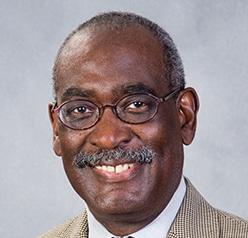

1978 Bonita Joy Yoder was the Keynote Court Jester at the 2024 Association for Applied and Therapeutic Humor Conference (AATH) & Humor Academy held in Denver. She graduated from Level 1 of AATH’s Humor Academy
1979 Kurt Harper became the managing member of Depew Gillen Rathbun & McInteer, LC.
1980 John P. Bowman serves as an arbitrator and expert witness in international energy disputes. This is his ninth-year teaching international energy arbitration at Georgetown University.
Dennis R. Garcia released his highly anticipated second book “Las Madres: Latinas in the Heartland Who Led Their Family to Success.”
1982 Hon. Karen Arnold-Burger was elected to the American Law Institute, a leading independent organization that produces scholarly work to clarify, modernize and otherwise improve the law.
Hon. Lawton R. Nuss joined the board of directors for All Rise, a nonprofit organization dedicated to advancing treatment courts and other justice innovations for individuals impacted by substance abuse and mental health disorders. He also spoke at the 55th Annual National Tribal Judicial and Court Personnel Conference in Las Vegas sponsored by the National American Indian Court Judges Association.
1984 Mark Parkinson was named the 2024 McKnight’s Pinnacle Awards Career Achievement Award honoree for his work as CEO of American Health Care Association/National Center for Assisted Living. He was also appointed to The Ensign Group’s Board of Directors.
Becky Weber was named a 2023 Top Lobbyist by the National Institute of Lobbying and Ethics. This distinction spotlights professionals who saw significant legislative success, have been innovative in their field, are held in high regard and give back to their community through charity or pro bono work.
1985 Craig Evans retired as executive vice president, general counsel and secretary of the Kansas City-based real estate investment trust EPR Properties.
1986 Robin Miles retired from Bracewell LLP after more than 37 years (30 as partner) in its New York office.
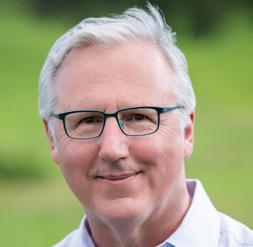
1987 Carl Edwards retired after serving the taxpayers of Kansas as an attorney for the Kansas Board of Tax Appeals for more than 34 years.
Bob Harris was named the director of financial planning and practice development for UMB Bank’s Private Wealth Management practice.
Patrick Hearn retired after 36 years serving as a federal prosecutor with the U.S. Department of Justice. Over the span of his career, he received many awards from the DOJ for his trial advocacy.
1988 Wanda M. Temm retired from full-time teaching after 33 years and will continue directing and teaching in the UMKC Bar Prep program she founded.
1989 Scott Kreamer was named one of the top managing partners of 2024 by Missouri Lawyers Media.
1990 Madeleine McDonough was named to the 2023 edition of Missouri & Kansas Super Lawyers and was named 2024 Woman of the Year by Missouri Lawyers Media. She currently serves as Chair at Shook, Hardy & Bacon L.L.P.

1992 Ken McCracken is general counsel and secretary of Nodal Exchange LLC, a derivatives exchange, and Nodal Clear LLC, a clearing house.
1994 Jeff Lindsey was appointed to acting district attorney for the 11th Judicial District of Colorado.
Christine Walton was promoted to First Business Bank’s vice president II – trust advisor and trust council.
1995 Marla R. Bell was named a managing partner of the Utah offices of Polsinelli.
Cynthia Bryant was featured in Bethesda Magazine’s 2024 Women Who Inspire.
Sal Intagliata was named to the list of Missouri & Kansas Super Lawyers for the tenth consecutive year.
1997 Matthew Hoy was elected as a Fellow in the American College of Trust and Estate Counsel (ACTEC) at the 2023 ACTEC fall meeting.
Brad Korell was honored for his outstanding volunteer record as a 2024 recipient of the Fred Ellsworth Medallion by KU Alumni Association.
1998 Megan L. Brackney was selected as chair-elect of the American Bar Association (ABA) Section of Taxation for 2025-2026.

Jennifer McDonald was elected to serve as vice chair of the Atlanta Public Schools Board of Education for a two-year term.
Brian Roberts serves as chief legal officer at Array, a national litigation support provider founded by Thadd Hale in Lawrence. He also launched a podcast, “The Attorney Lounge,” where he interviews attorneys about their life, law and business.
1999 Matthew Merrill was recognized by Missouri Lawyers Media for his recent trial victory in a wrongful death case of $25 million. The trial was ranked the No. 4 defense verdict in Missouri for 2023. Merrill is a shareholder at Sandberg Phoenix.
2000 James Grogan joined Greenberg Traurig, LLP as a shareholder.
Fred Patton joined Harris Kelsey, Chartered and jointly operates the firm’s Government Affairs Division.
2001 Hon. Troy Khalik Hill was appointed to the Baltimore City Circuit Court by Gov. Wes Moore. Hon. Jared Johnson was appointed to the 28th Judicial District by the Kansas Supreme Court.
Karen Ruckert received the U.S. Department of Justice Civil Rights Division’s Assistant Attorney General’s Distinguished Service Award.
2002 Capt. Richard Federico was nominated by President Joe Biden and confirmed to the U.S. Court of Appeals for the Tenth Circuit.
Jason H. Klein relocated to Scottsdale, Arizona, from Denver, Colorado, with his wife, Laura V. Klein, L'00, and their two boys. He is a partner with the national law firm of Wood, Smith, Henning & Berman, LLP, and practices in their Phoenix office.
Robert Willette was appointed chief legal officer of enCore Energy Corp.
2004 Paul Turvey was named general counsel and secretary of the Kansas City-based real estate investment trust EPR Properties.
2006 Meryl Carver-Allmond was hired as general counsel to Kansas Supreme Court Chief Justice Marla Luckert.
Kathleen Fisher Enyeart joined the litigation group at Lathrop GPM in the firm’s Kansas City Office.
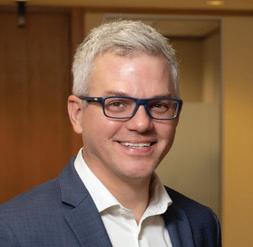
S.J. Moore is one of three new leaders at a Kansas City-based law firm formerly known as Krigel and Krigel. While the new management has been in place since 2021, the law firm has officially changed its name to Krigel Nugent + Moore.
2007 Michelle Dixon was appointed the Jackson County family court commissioner by the Jackson County Circuit Court.
Sulolit “Raj” Mukherjee, L'04, was hired by the Internal Revenue Service as an executive advisor in cryptocurrency and other digital assets. With his extensive experience in the tax and crypto industries, he helps lead IRS efforts building service, reporting, compliance and enforcement programs focused on digital assets.
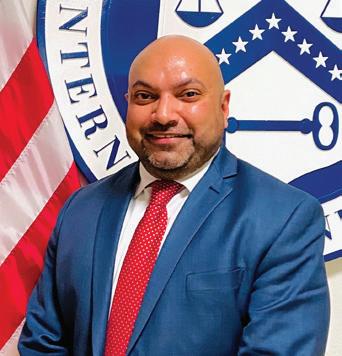
2008 Tadd Blair joined Gunster Yoakley & Stewart as an associate business litigation attorney in their Jacksonville office.
Dennis Kuhnel was appointed as forest supervisor of the Rio Grande National Forest.
Matt Mentzer joined Foulston Siefkin’s Kansas City office.
Kevin Oakleaf joined ACERTUS as Vice President, Associate General Counsel.
Devin Sikes was reappointed by the U.S. Trade Representative (USTR) to the U.S. roster of panelists who may resolve antidumping and countervailing disputes arising under Chapter 10 of the U.S.-Mexico-Canada Agreement (USMCA). He was also selected as a recipient for the 2024 Native American Indigenous Leadership Award from the Diversity Journal.
2009 Jon S. Cline joined Honigman LLP as a partner.
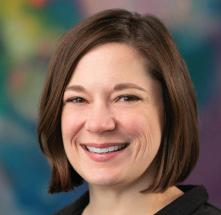
Ashlyn Lewis was promoted to member of Lewis Rice LLC and works in the litigation department of the firm’s Kansas City office.
Andrew Shaw joined Bracewell’s Policy Resolution Group as a partner in the firm's Washington, D.C. office.
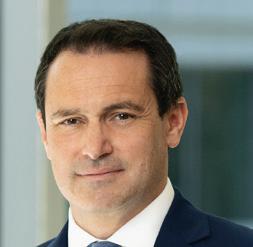
2010 Andrew J. French has been reappointed for a second four-year term to the Kansas Corporation Commission (KCC).
2011 Adam Zentner was featured in a Marquis Who’s Who article for his dedication to the field of law. He is the founder of Zentner Law in Lenexa.
2012 Van Winter was promoted to vice president of marketing and aftermarket sales at Mid-Continent Instruments and Avionics and True Blue Power.
2013 Bryant Parker was appointed as Deputy Counselor for Riley County, Kansas.
J.P. Rankin was appointed Chief Compliance & Legal Officer of Modern Wealth Management.
Eric Sader received the 2024 Bonsignore Excellence in Undergraduate Teaching Award, bestowed by the International Academy of Legal Studies in Business at its Centennial Celebration in Washington, D.C.
Shannon Swimmer was named director of the Western Carolina University Cherokee Center.

Matthew Tillma joined Baker Sterchi Cowden & Rice as a senior attorney, expanding the firm’s construction, surety and commercial litigation practice.
2014 Peter Conley served as faculty at the October 2024 "Rethinking Forensics" workshop in New Delhi, India, organized by National Law University Delhi's Project 39A.
W. Clark Richardson was named to the 2023 edition of Missouri & Kansas Super Lawyers. He is an attorney with Shook, Hardy & Bacon L.L.P.
Aubrey Sample became the City of Olathe’s first public safety legal advisor.
Chalinee Tinaves joined Ford Motor Company as a trade controls attorney.
2015 Stewart Bogart joined Baker Sterchi Cowden & Rice as a senior attorney practicing in the area of civil litigation defense.
Trevor Bond has joined the Kansas City office of Ogletree Deakins. His practice focuses on employment law.
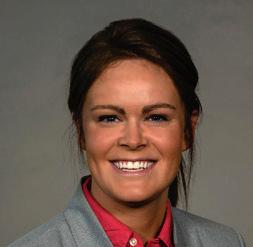
Jennifer Hackman was named partner at Shook, Hardy & Bacon L.L.P. Hackman focuses on environmental, toxic tort and exposure litigation in the firm’s Kansas City office. She was also named to the 2023 edition of Missouri & Kansas Super Lawyers.
Joseph McGroder was promoted to partner at Graves Garrett Greim LLC.
Hillary Nicholas was named to the 2023 edition of Missouri & Kansas Super Lawyers. She is an attorney with Shook, Hardy & Bacon L.L.P.
William Walberg was named to the 2023 edition of Missouri & Kansas Super Lawyers. He is an attorney with Shook, Hardy & Bacon L.L.P.
2016 Alex Gilmore is a new partner at Fisher, Paterson, Saylor & Smith, LLP in the firm’s Overland Park office.
Kinsey Lenehan was elected counsel at Richards, Layton and Finger, P.A. in Delaware.
Derek Schmidt was elected to the U.S. House of Representatives in Kansas’ 2nd Congressional District.
2017 Andrew Kershen was promoted to senior staff counsel with the California State Lands Commission.
William McVicker joined Taylor Day Grimm & Boyd as an attorney in the firm’s Jacksonville office to focus on construction law and premises liability.
Robert Reynolds joined Lewis Brisbois as an associate attorney.
Karly Weigel accepted a position as counsel in Employment and Compliance with Flynn Group.
Christopher Wolcott was named to the Dayton Business Journal’s Forty under 40 list for 2024. He currently works as a senior litigation associate at Taft Stettinius & Hollister LLP.
2018 Claire Kebodeaux joined the City of Olathe as an assistant city attorney.
2020 Joseph L. Korbel was one of 20 San Antonio attorneys elected into the San Antonio Bar Foundation’s Fellows Class of 2024. He is an associate at Davis, Cedillo & Mendoza, Inc.
Ariel Rhines joined McDowell Rice.



Samantha Patterson joined Baker Sterchi Cowden & Rice LLC as an associate practicing in the area of civil litigation defense.

Diana Stanley became a partner at Depew Gillen Rathbun & McInteer, LC.
2021 Shaye Maetzold Anderson joined Holland & Hart’s Denver office as an associate.
Michelle Brady joined Fitzpatrick, Hunt & Pagano, LLP as an aviation attorney.
2022 Jonathan A. Yelton was appointed as associate circuit judge for Warren County in the 12th Judicial Circuit by Missouri Gov. Mike Parson.
2023 Bander Almohammadi was included in the Marquis Who’s Who for 2024. He also published his fourth scholarly work, “Child Marriage in Tanzania.”
Andrew Arbuckle joined Stinson LLC in its Kansas City office as part of the firm’s fall associates class of 2023.
Kristen Andrews was accepted to the Centurions APEX class of 2026. She is currently an attorney at Kennyhertz Perry.
Kevin C Barnett was sworn into the Navajo Nation Bar Association and sworn in as an attorneyprosecutor for the Navajo Nation Office of the Prosecutor Major Crimes Unit. He was previously sworn into the New Mexico Bar in October 2023.
Hunter Kruse joined Stinson LLC in its Kansas City office as part of the firm’s fall associates class of 2023.
Allie O’Neill was selected as the runner up for the Andrew P. Vance Memorial writing competition sponsored by the Customs and International Trade Bar Association (CITBA).
Michal Whitney joined Stinson LLC in its Kansas City office as part of the firm’s fall associates class of 2023.
2024 Michael Archer was hired as the chief of staff for Kansas House of Representatives Speaker Pro Tem Blake Carpenter.
Julia “JC” Carter was one of 52 new assistant district attorneys appointed to the Queens District Attorney’s Office in New York.


1956
Hon. Fred N. Six
Topeka, Kansas
April 27, 2024
1957
Charles T. Crawford
New York, New York
August 17, 2024
Duane R. Hirsch
Seattle, Washington
February 25, 2024
1959
Robert L. Howard
Wichita, Kansas
April 23, 2024
Charles A. Sparks
Denver, Colorado
November 11, 2023
1964
Philip D. Lunt
Pratt, Kansas
February 17, 2024
1965
David C. All
Lawrence, Kansas
November 9, 2023

Marshall L. Crowther
Lawrence, Kansas
June 1, 2024
David R. Hederstedt
Kansas City, Missouri
May 7, 2024


1966
Robert Koehler
McLean, Virginia
January 26, 2024
Richard L. Zinn
Lawrence, Kansas
October 19, 2023
1967
Richard L. “Bud” Meyer
O’Dell, Nebraska
June 1, 2024
1967
Thomas M. Tuggle
Concordia, Kansas
December 29, 2023
1968
David C. Adams
Lawrence, Kansas
December 29, 2023
1970
Stanford J. Patterson
Lady Lake, Florida
January 23, 2024
John Harold Taylor
Manhattan, Kansas
August 27, 2024

1972
Michael J. Lichty
Austin, Texas
November 27, 2023
1973
Dale Wayne Rufenacht
Amarillo, Texas
July 16, 2024


1974
Michael A. Howard
Olathe, Kansas
August 14, 2023
1978
John M. Hoffman
Seattle, Washington
February 10, 2024
1981
Hon. Thomas Paul Milkulka
Topeka, Kansas
January 8, 2024
Donald Gene Strole
Lawrence, Kansas
August 29, 2024
1982
Hon. Richard H. Hodso
Garden City, Kansas
February 25, 2024
1983
Michael J. Stapp
Shawnee, Kansas
January 15, 2024
1984
John A. Logan
Denver, Colorado
August 13, 2024
1985
Luke B. Harkins
Lenexa, Kansas
July 17, 2024
1986
Lee E. Green
Port Isabel, Texas
February 24, 2024


1987
David A. Blutcher
Olympia Fields, Illinois
July 31, 2024
Dara Trum Miles
Boulder, Colorado
September 14, 2004
1990
Tonya Olsen Johnston
Naples, Florida
June 5, 2024
1992
Timothy B. Cook
Des Moines, Iowa
February 3, 2024
Derek Grimes
Enid, Oklahoma
January 31, 2024
1993
W. Michael Gentry
Kansas City, Missouri
March 18, 2024
2002
Joshua K. Allen
Prairie Village, Kansas
December 9, 2023

2020
Amanda L. Pankratz
Dodge City, Kansas
March 7, 2023
